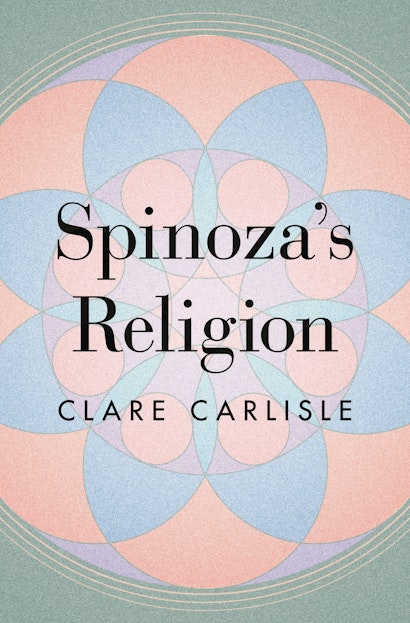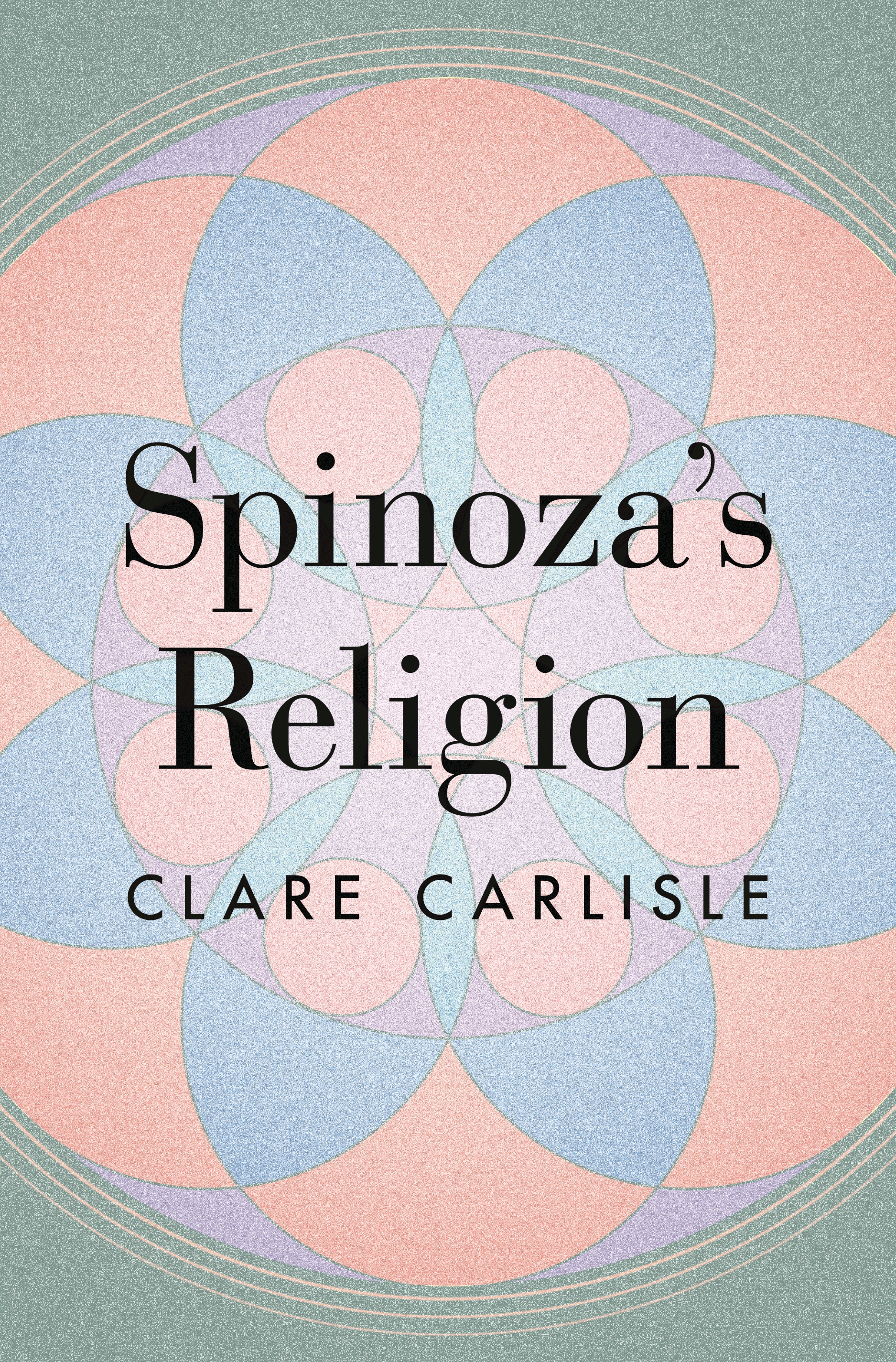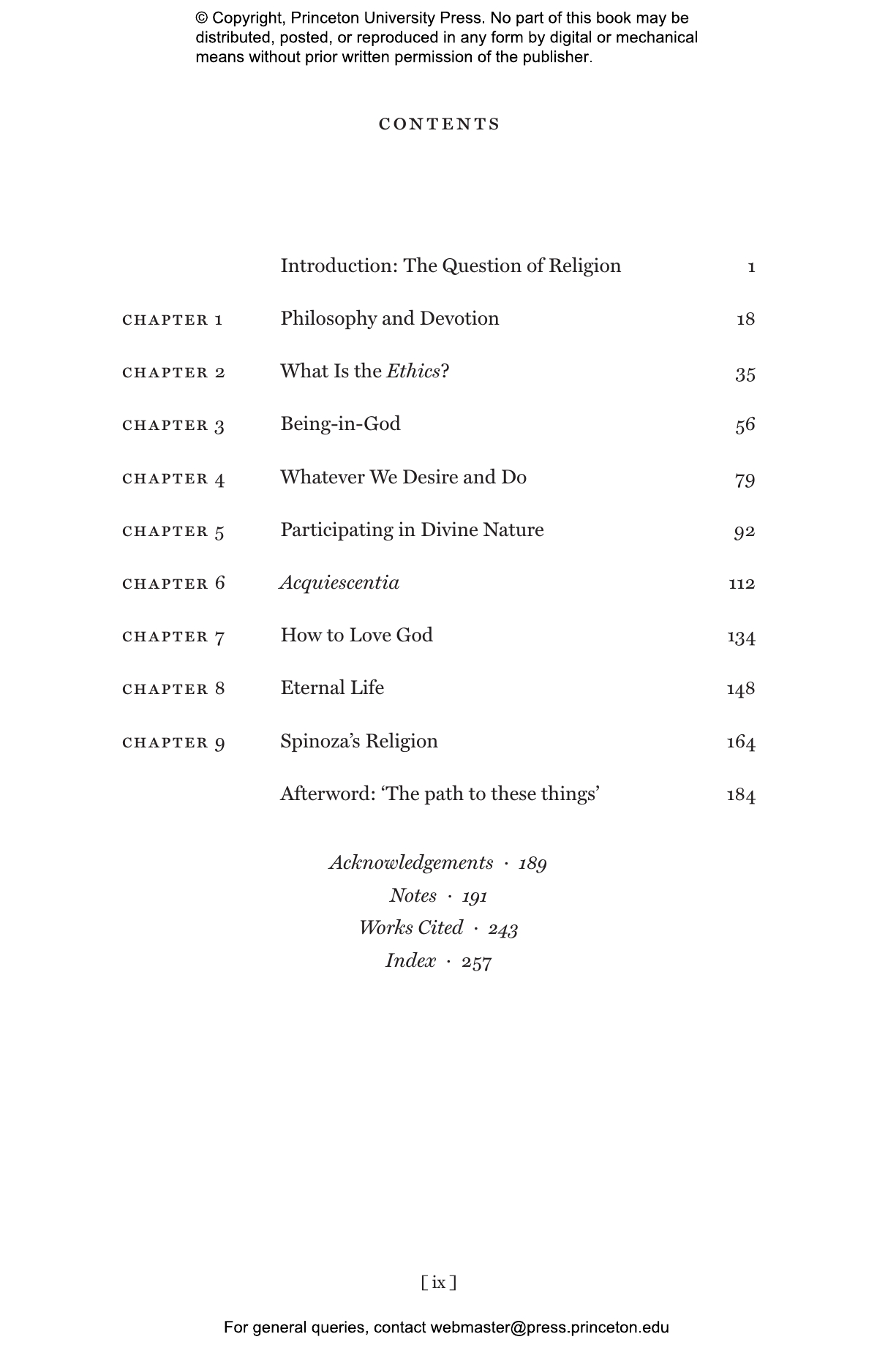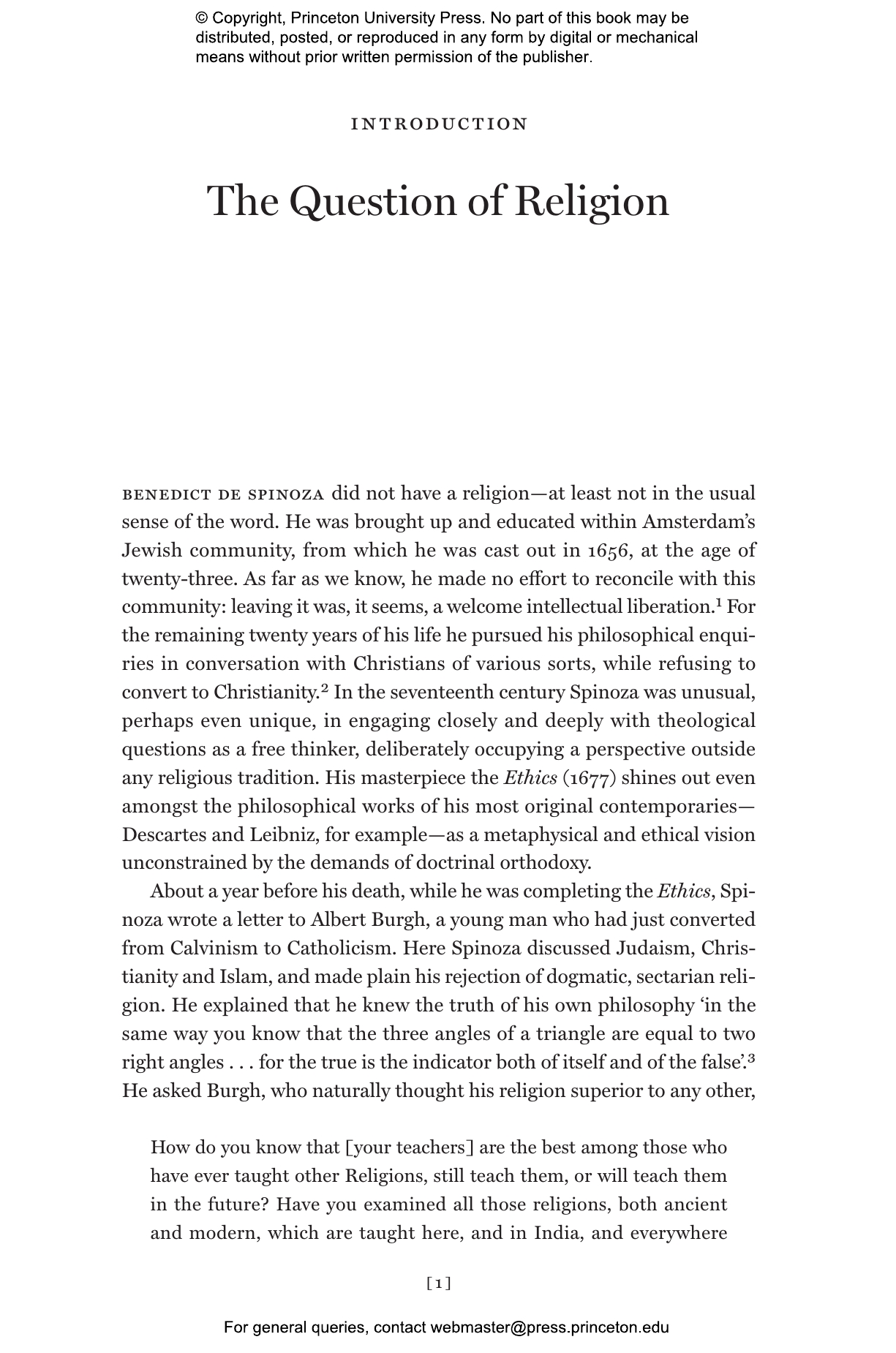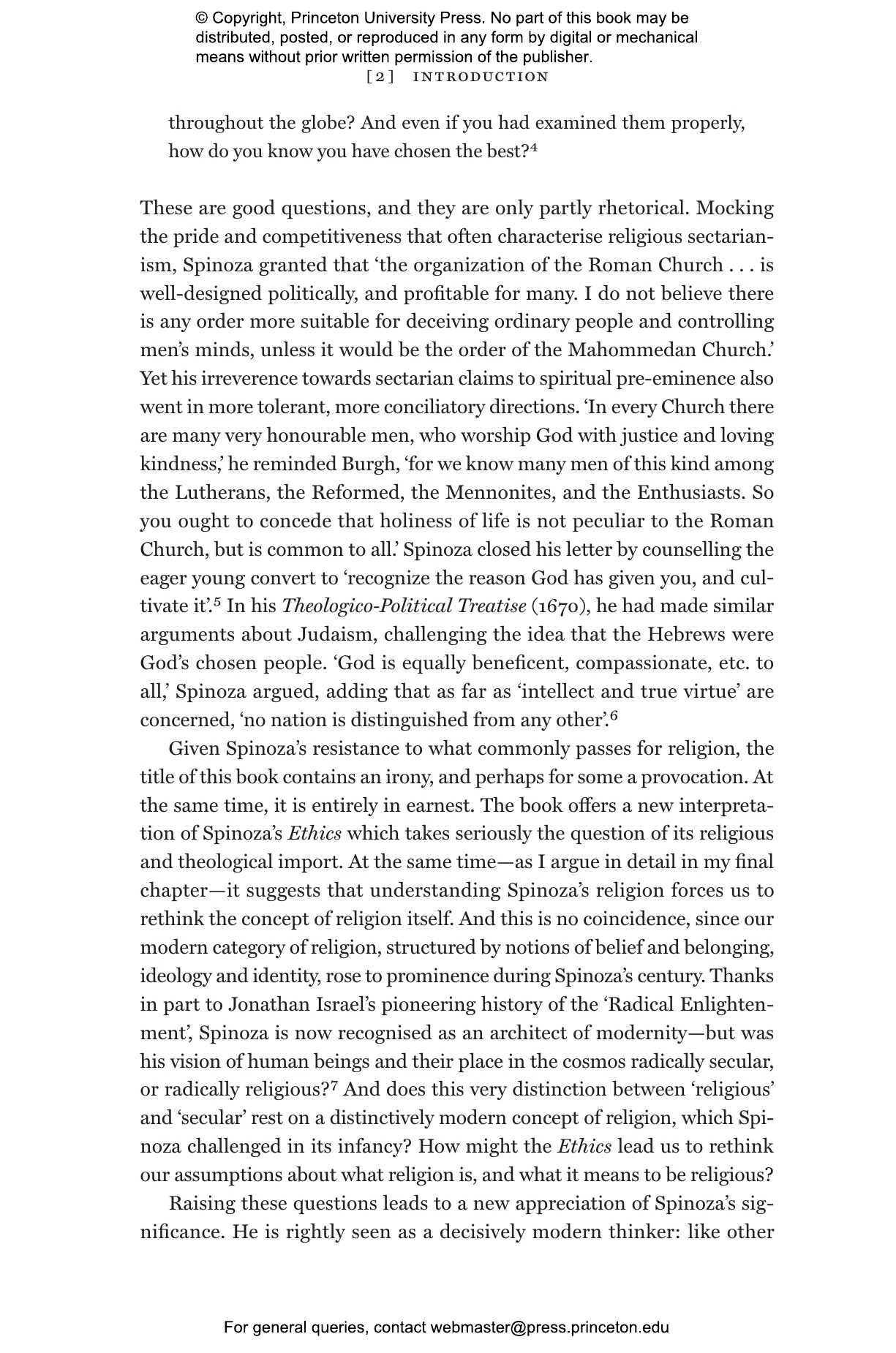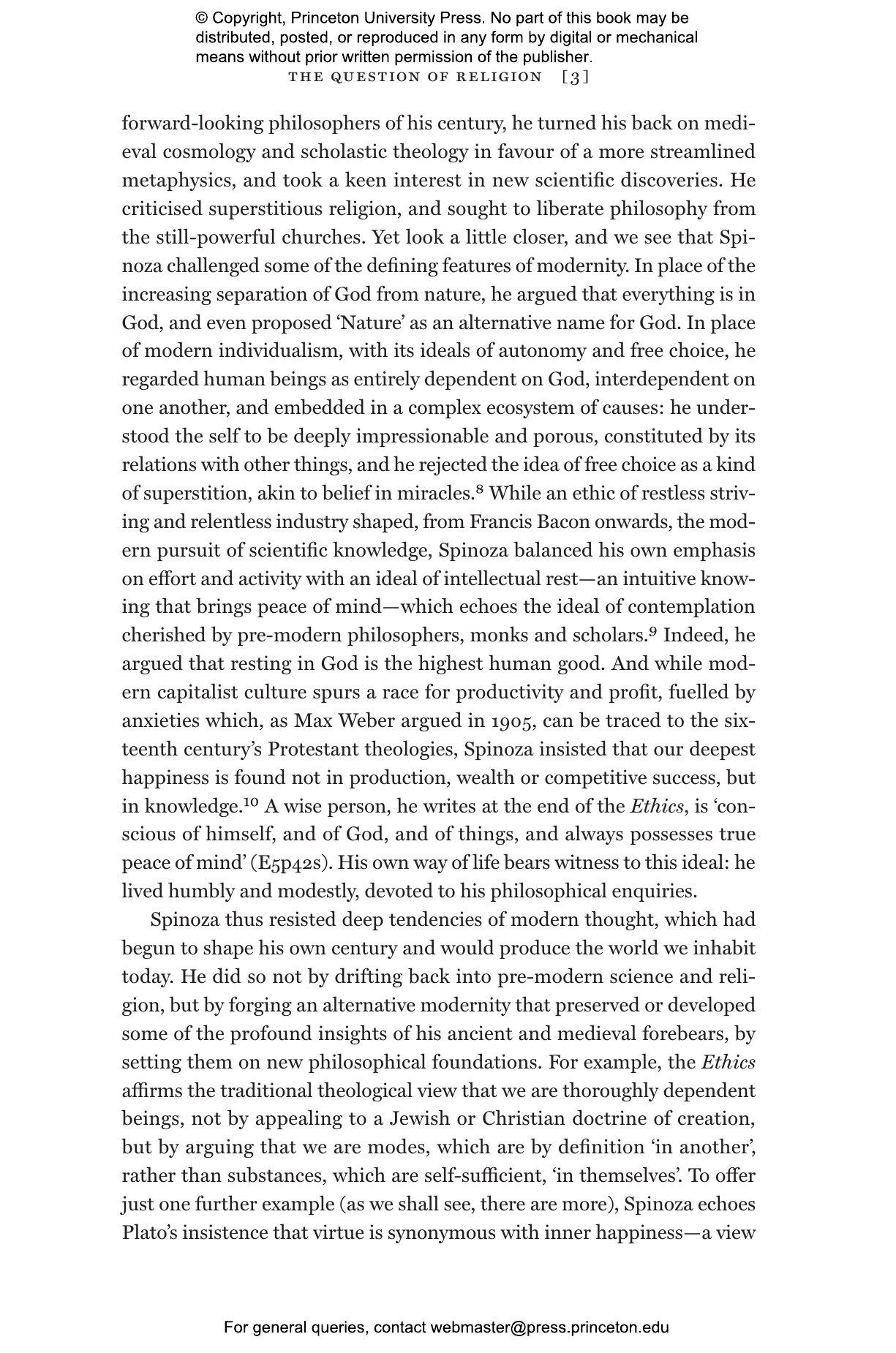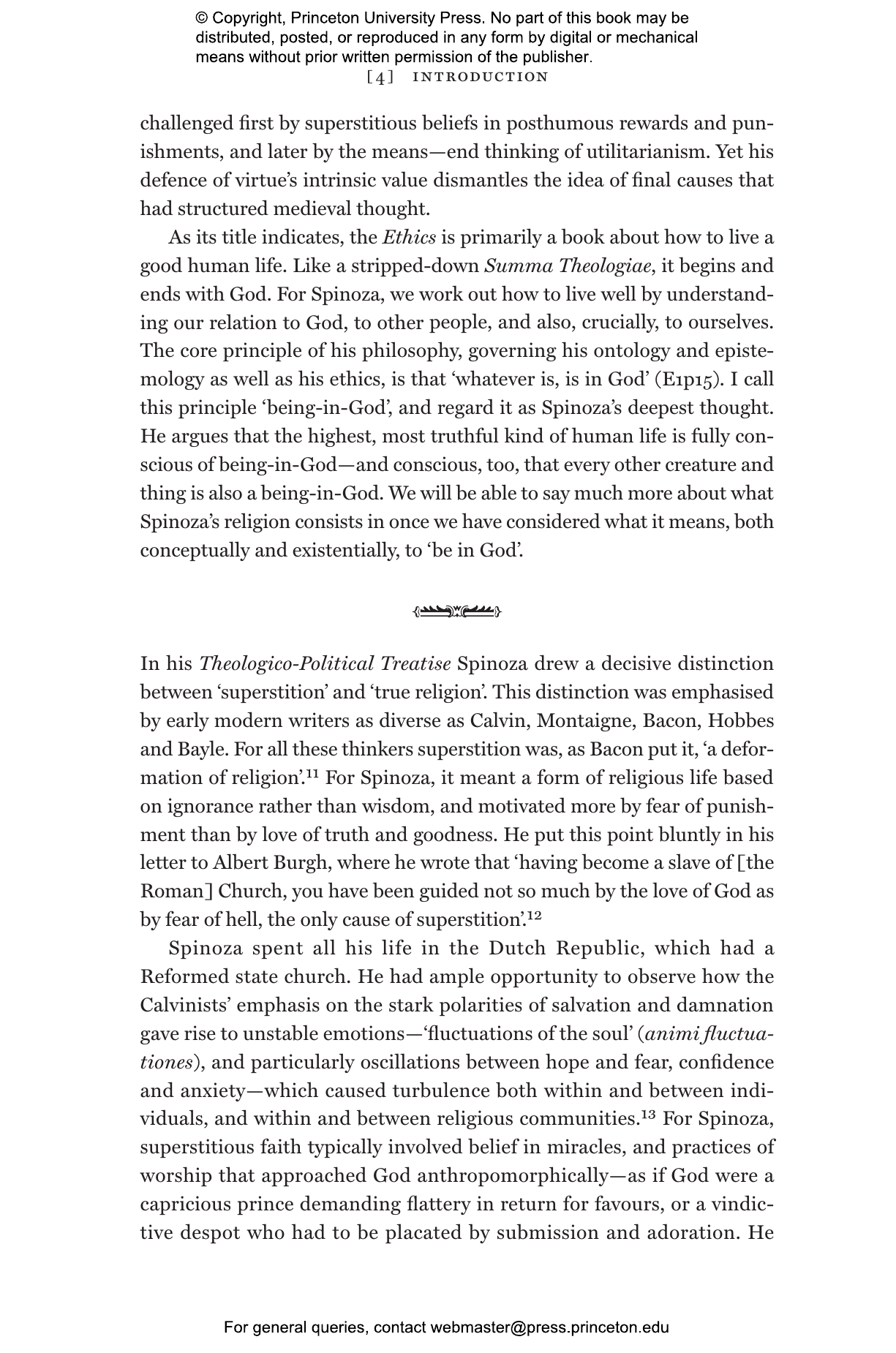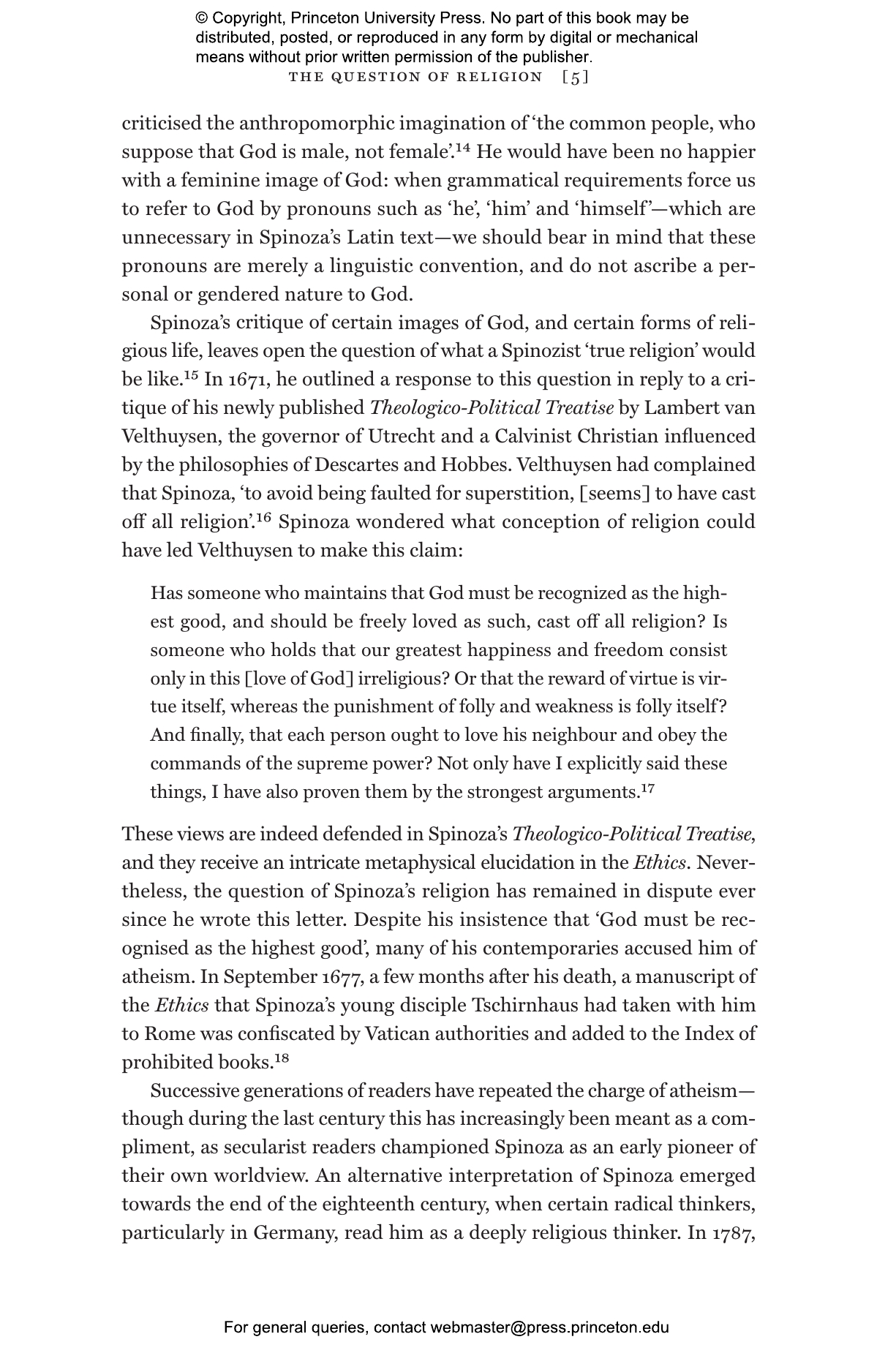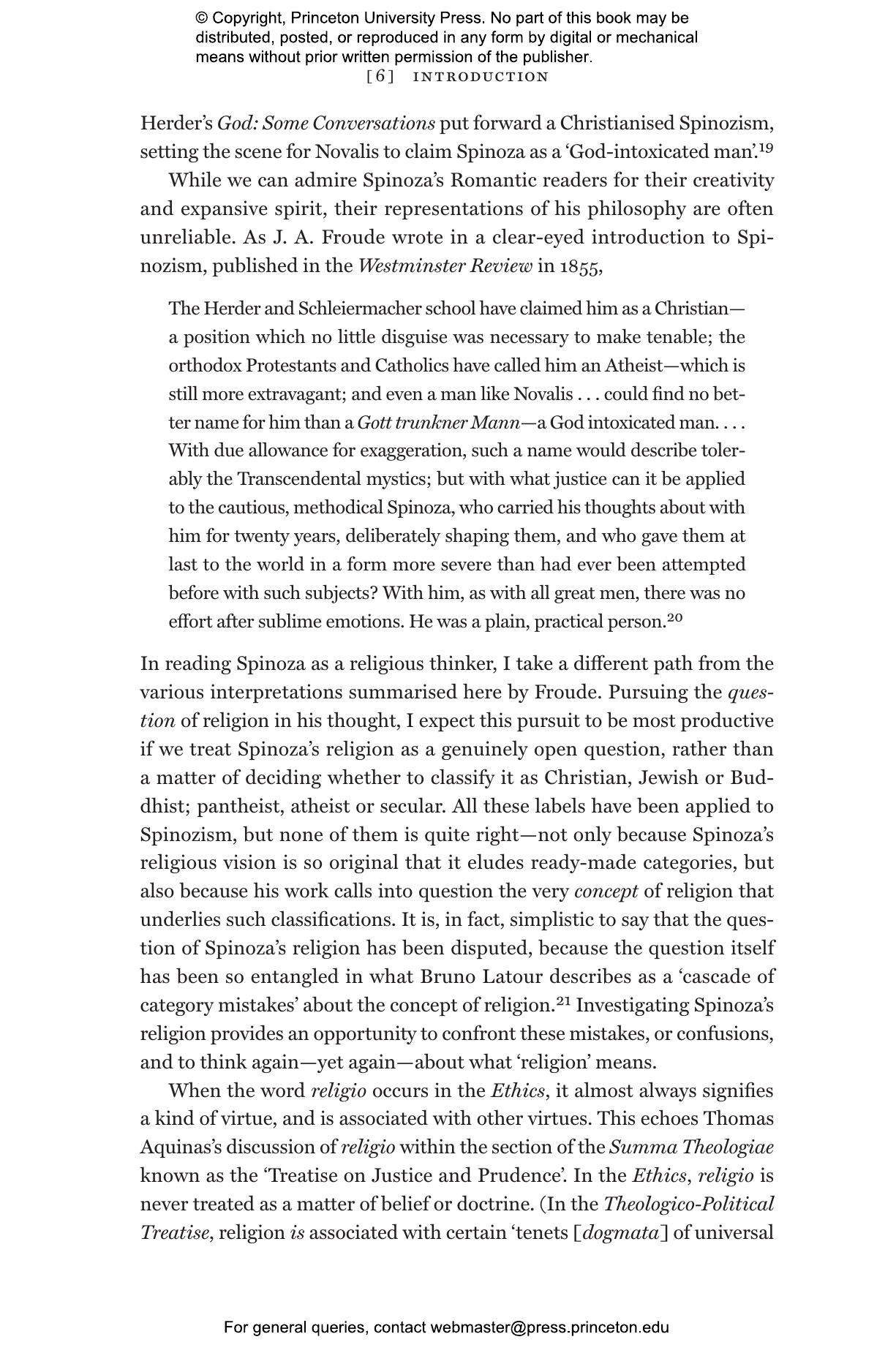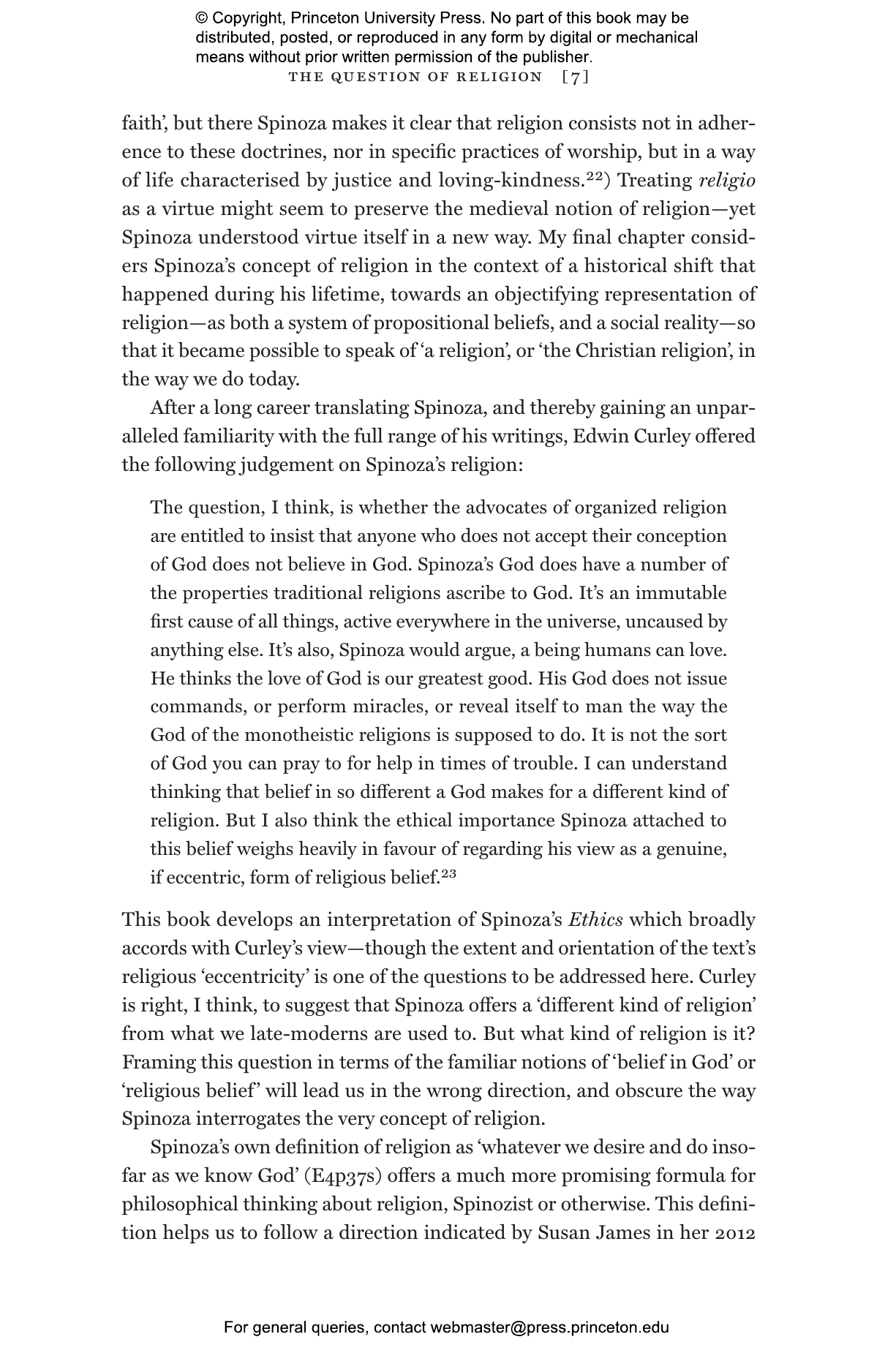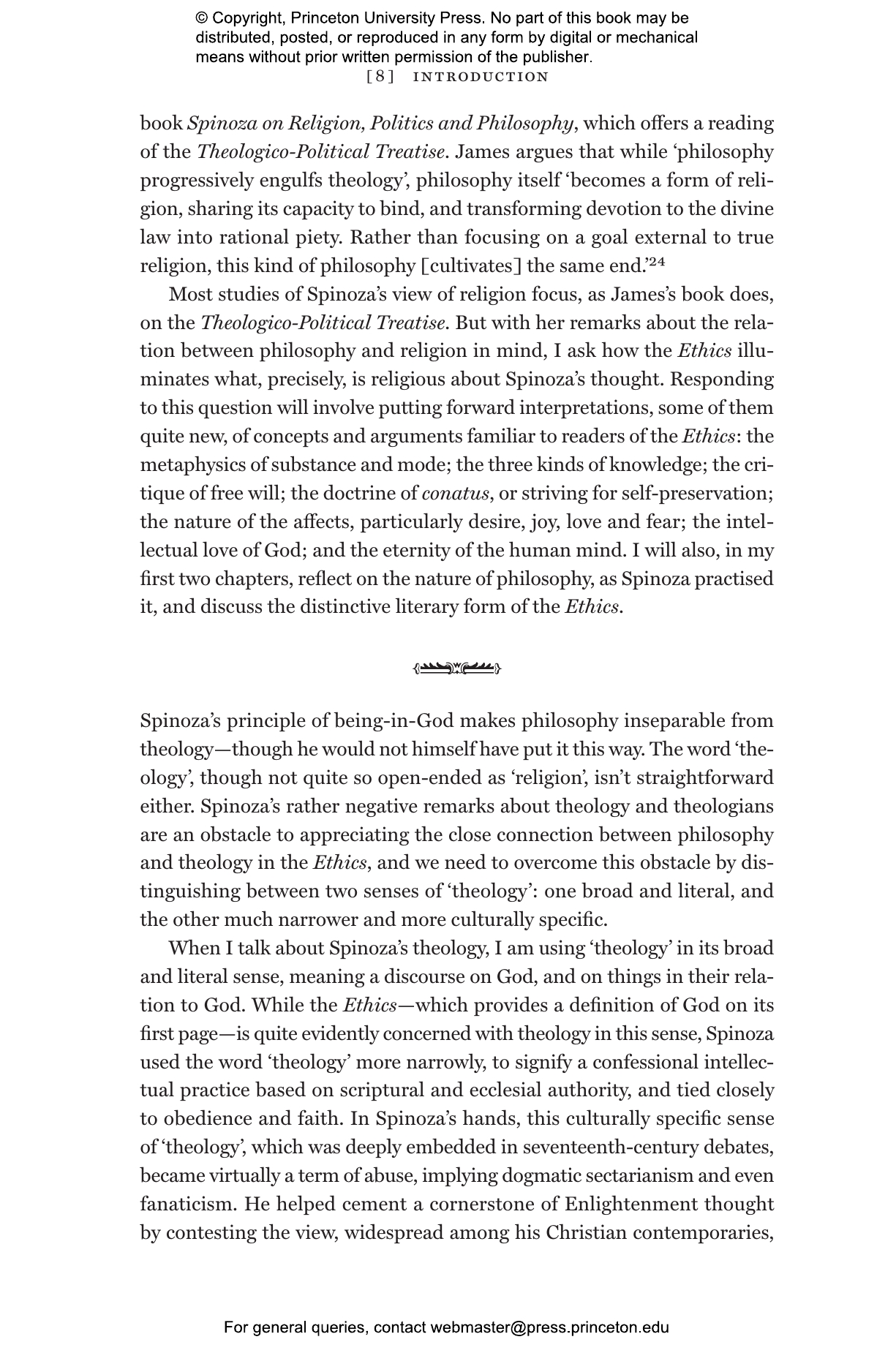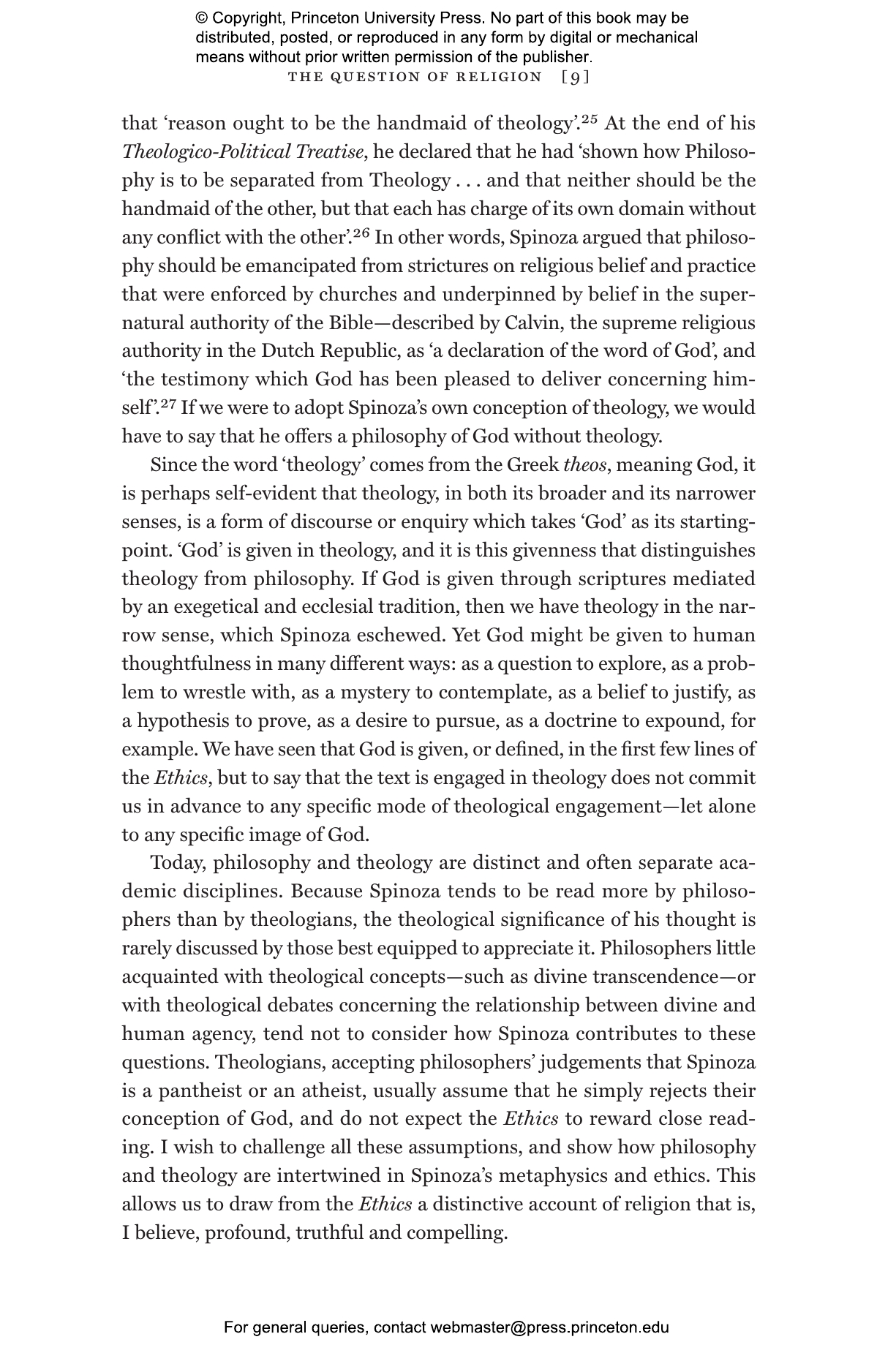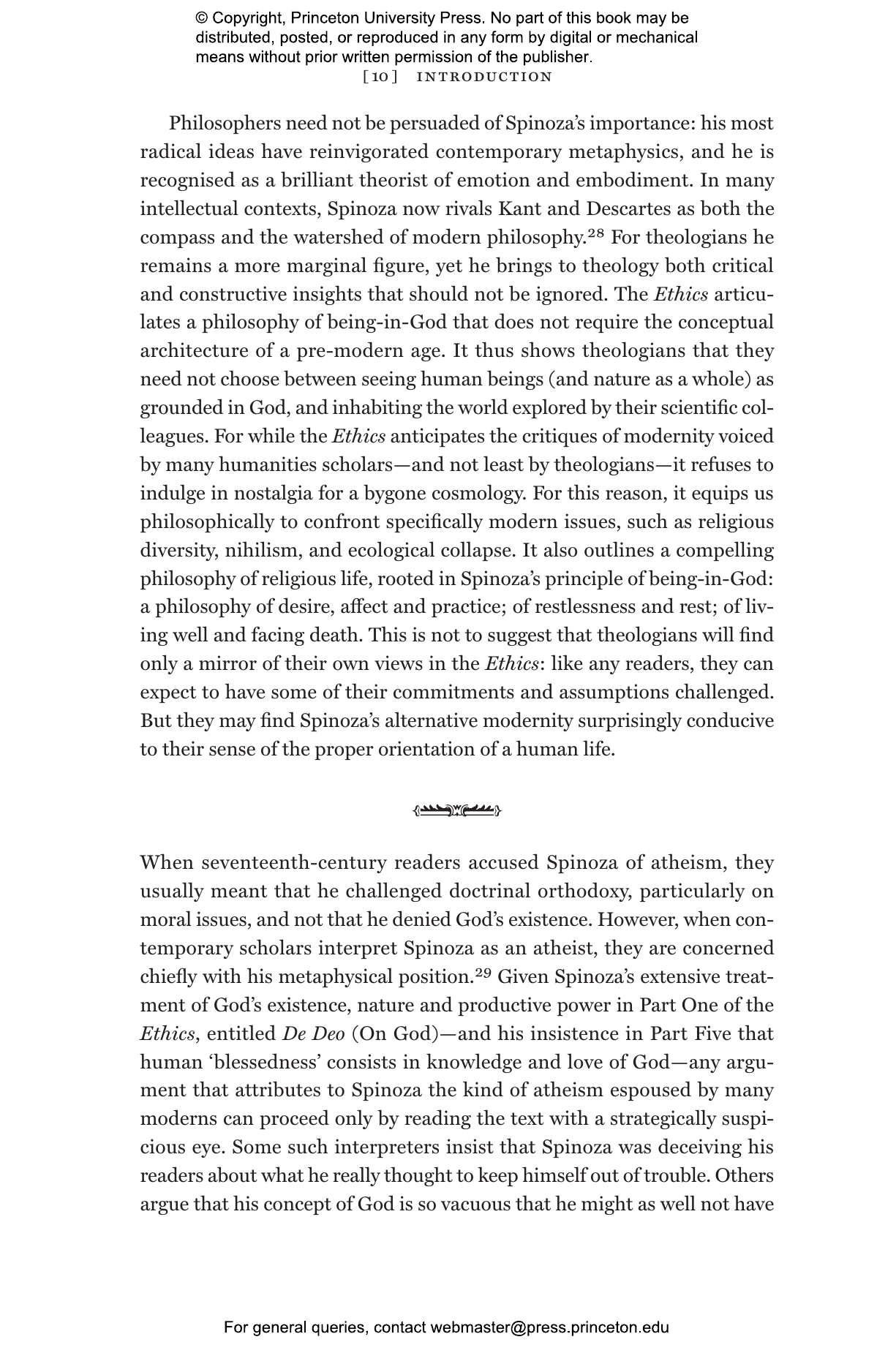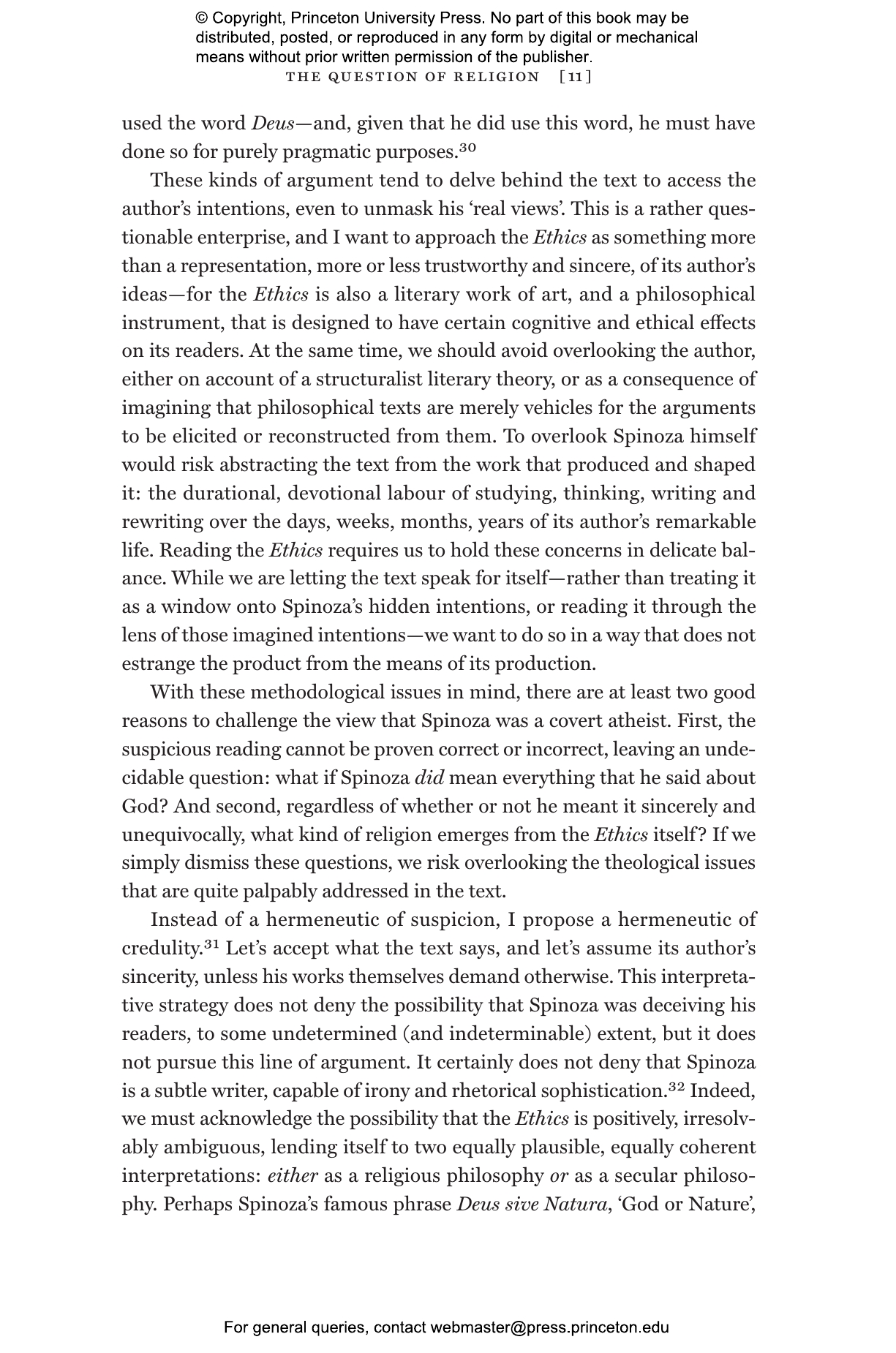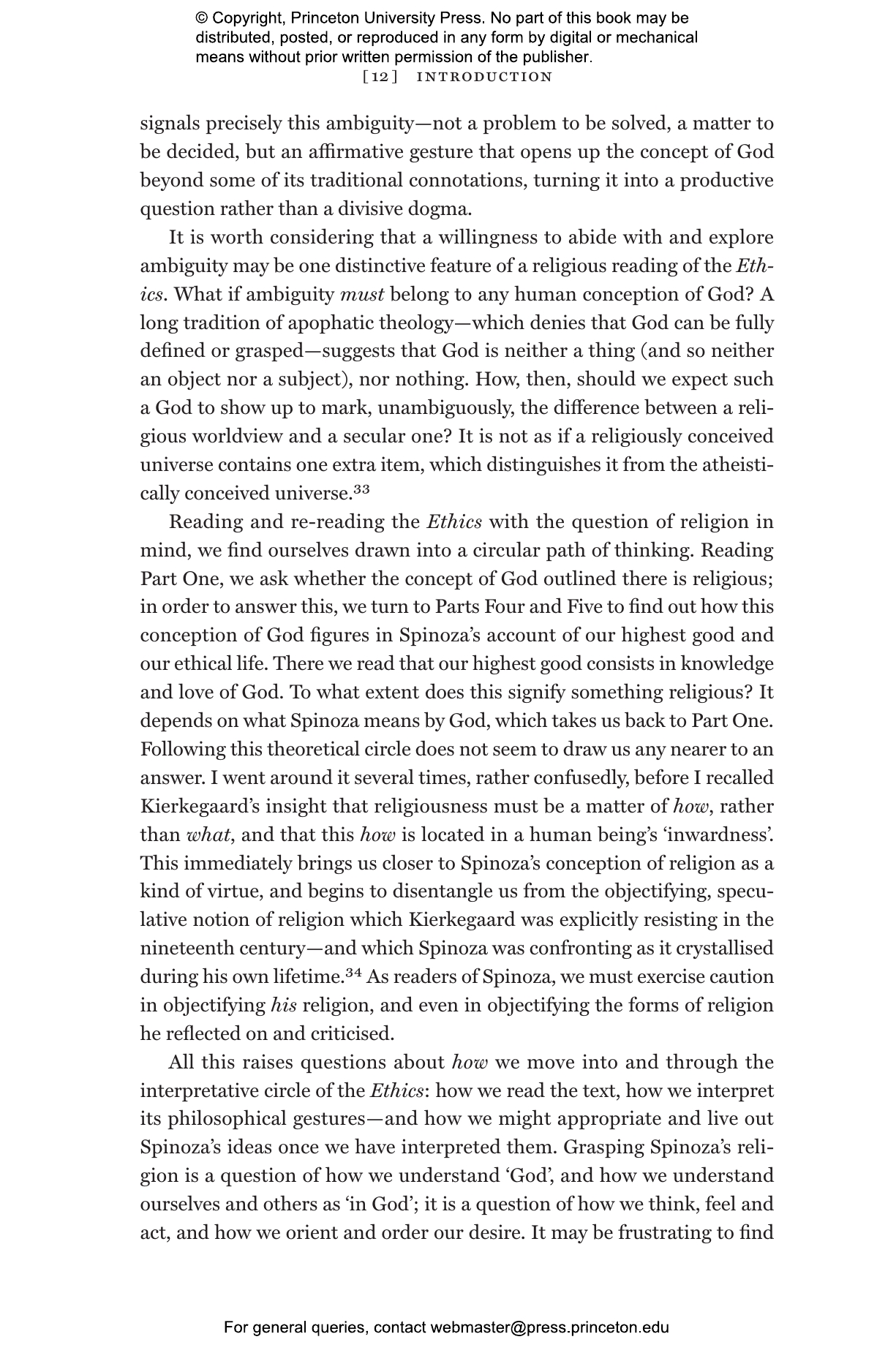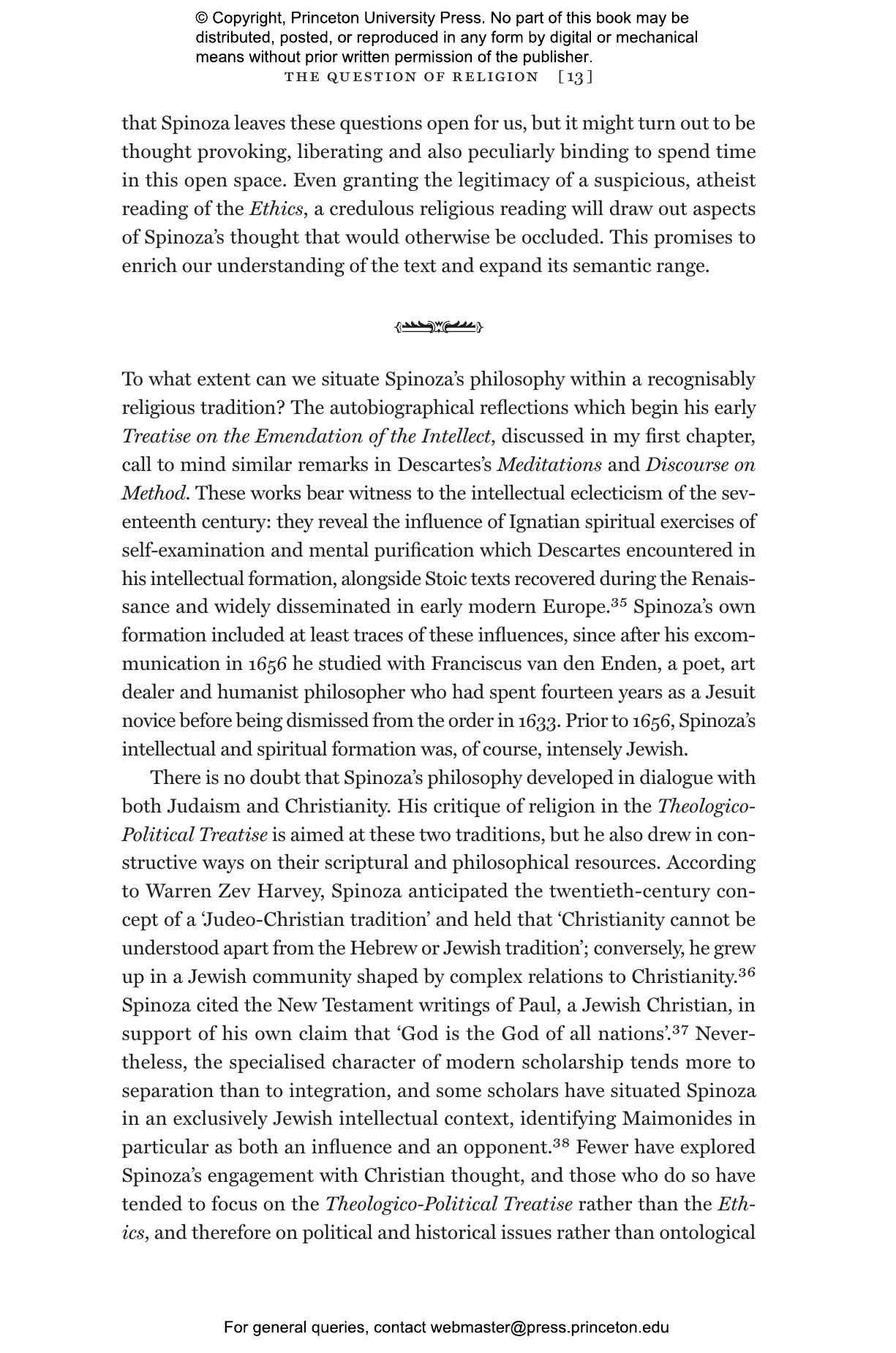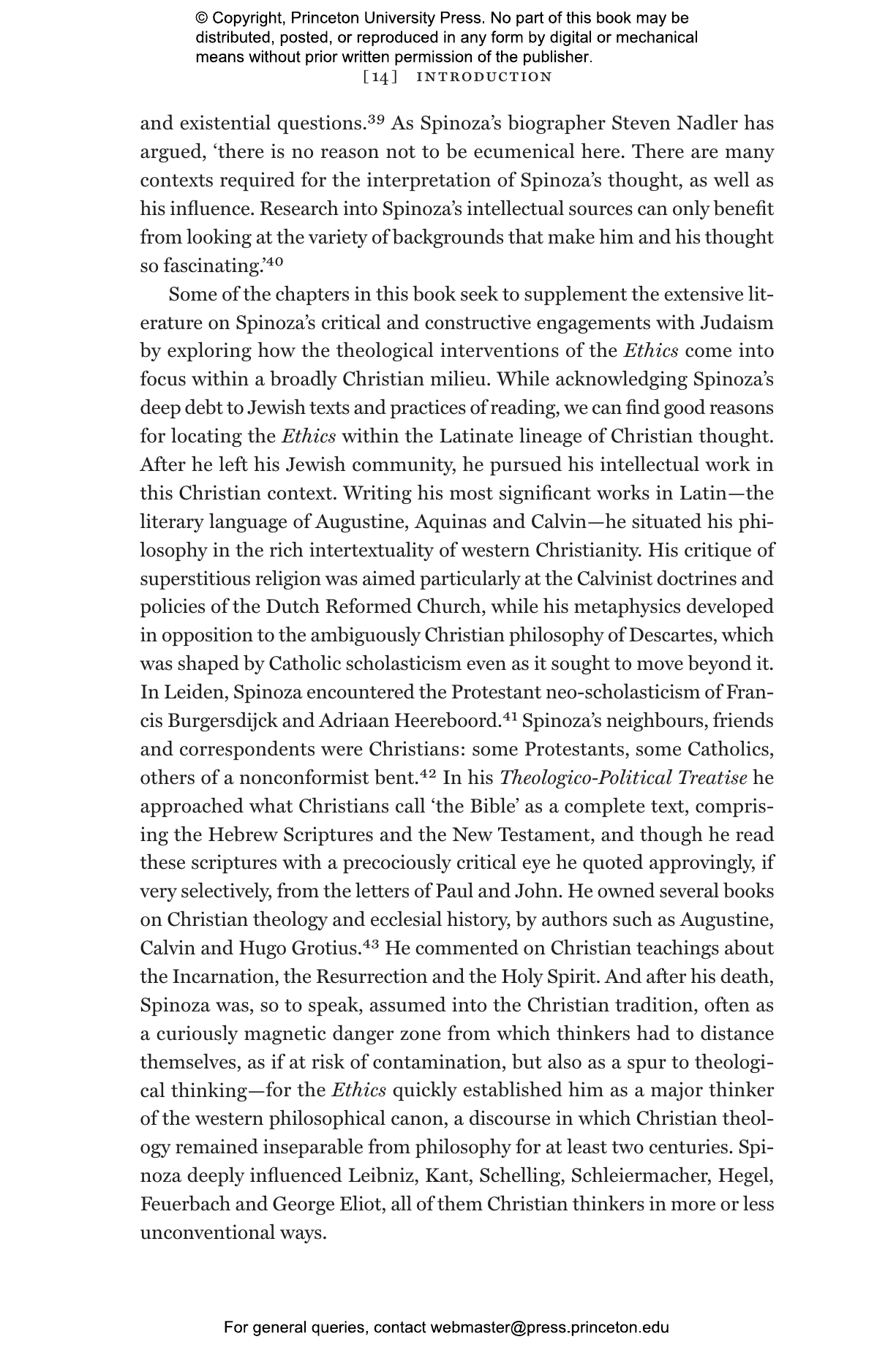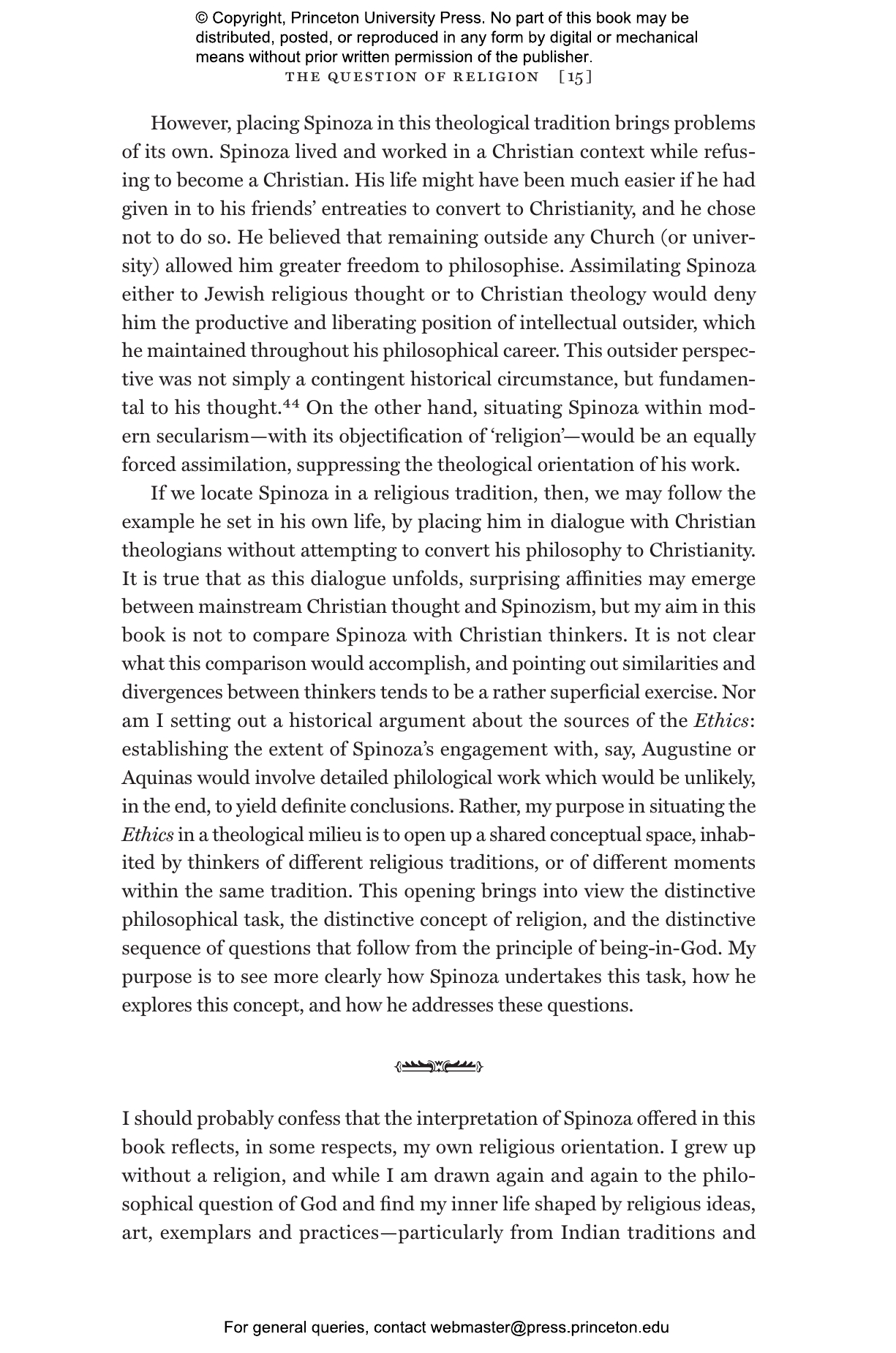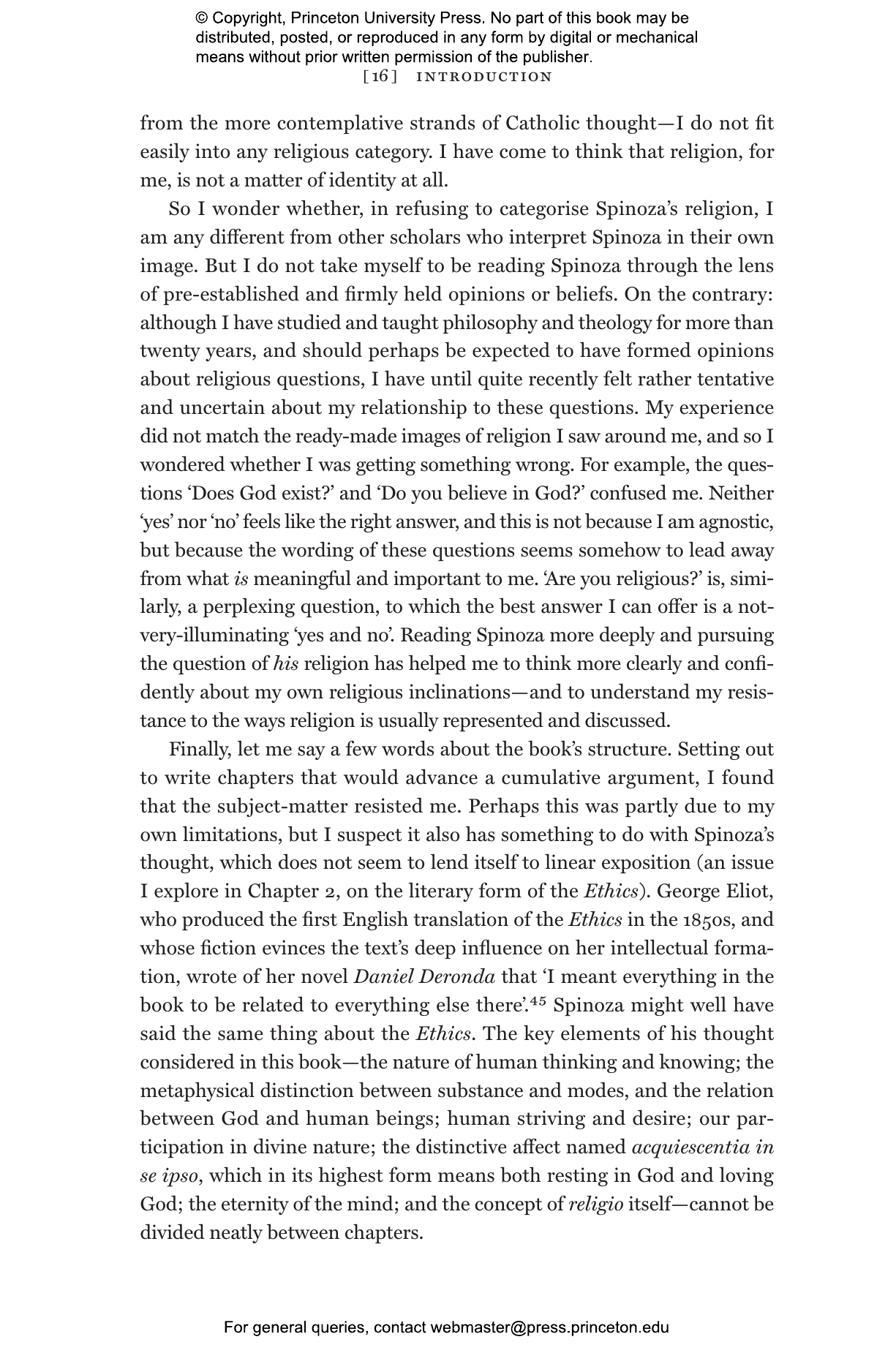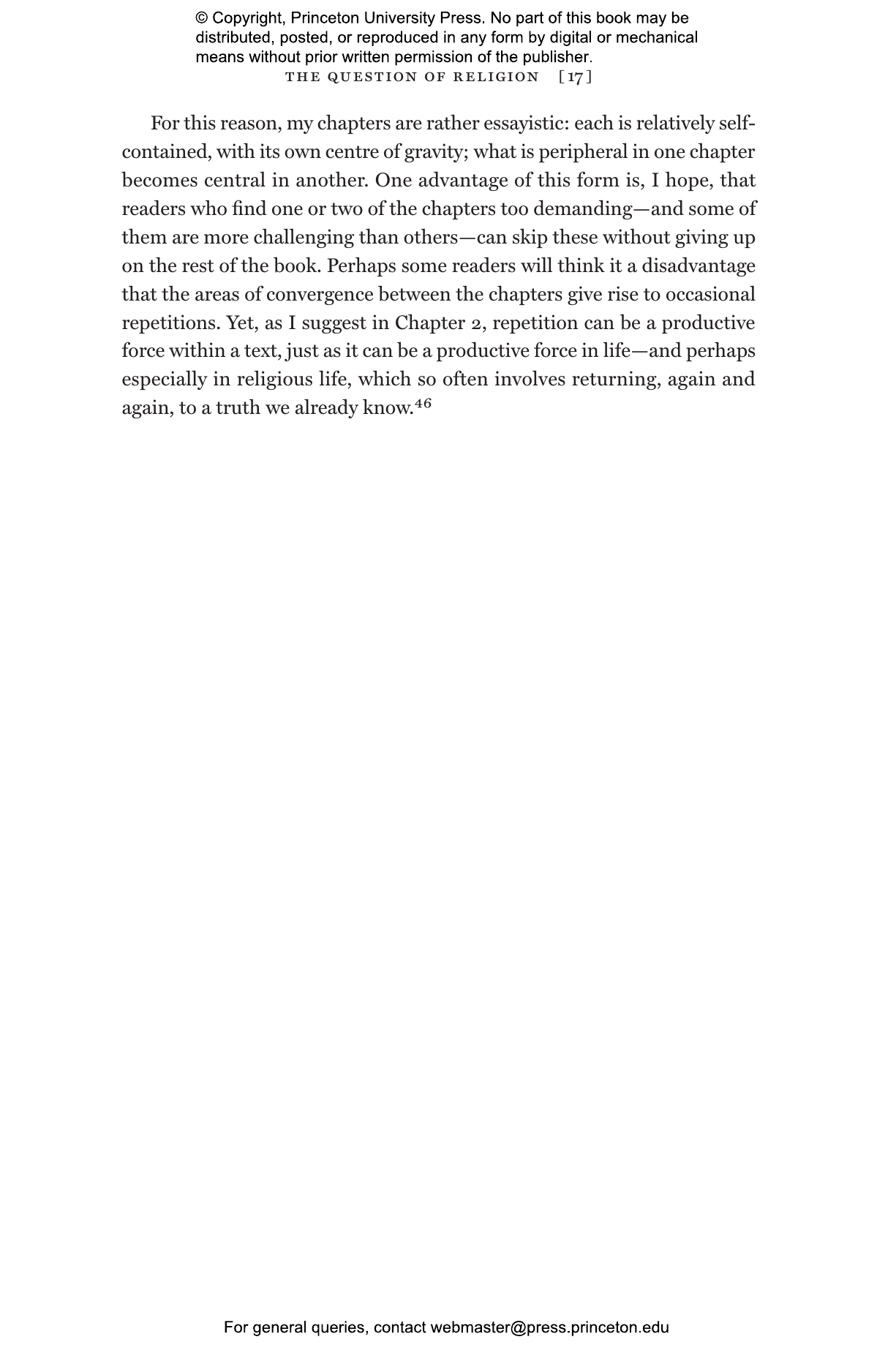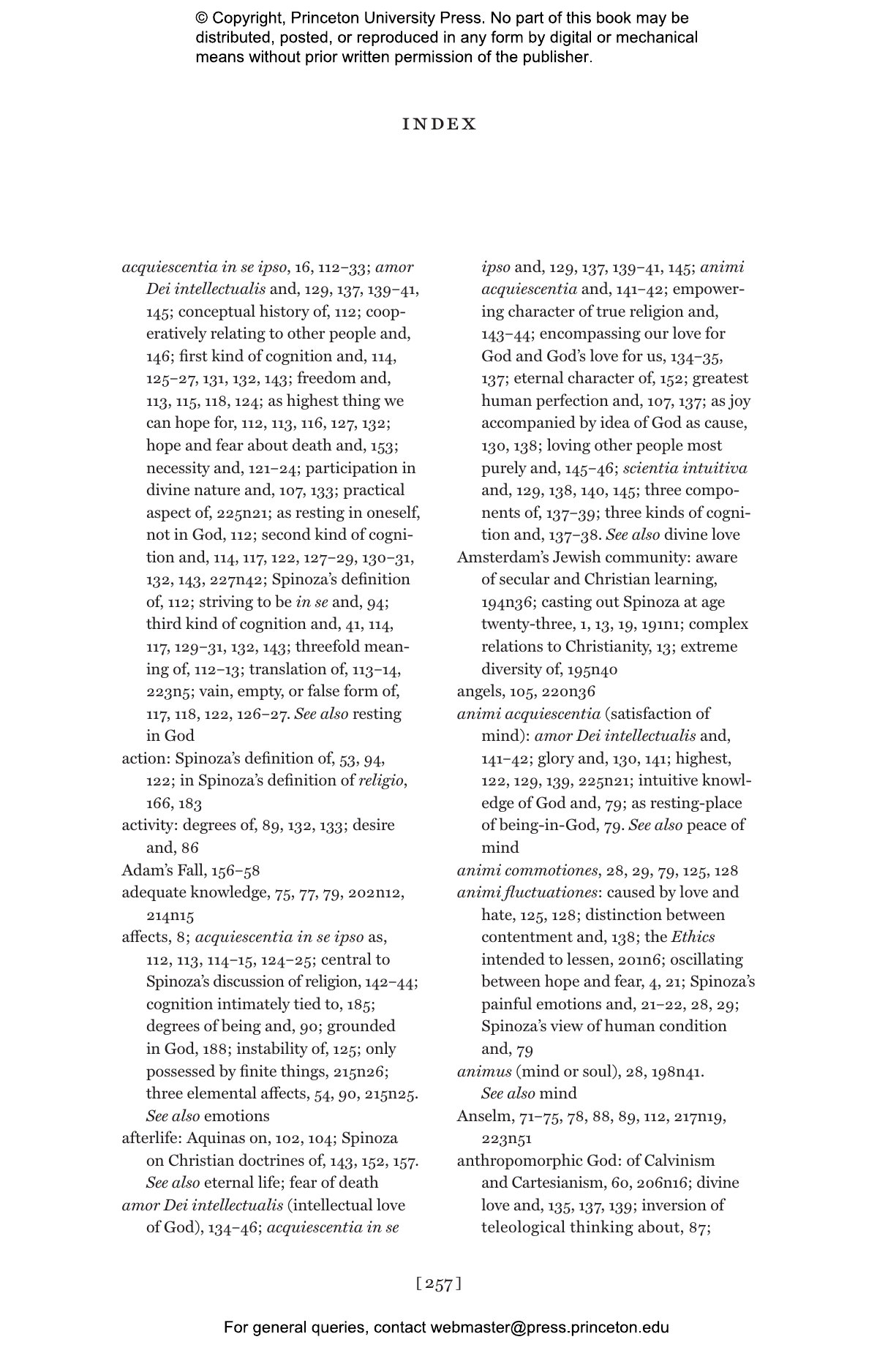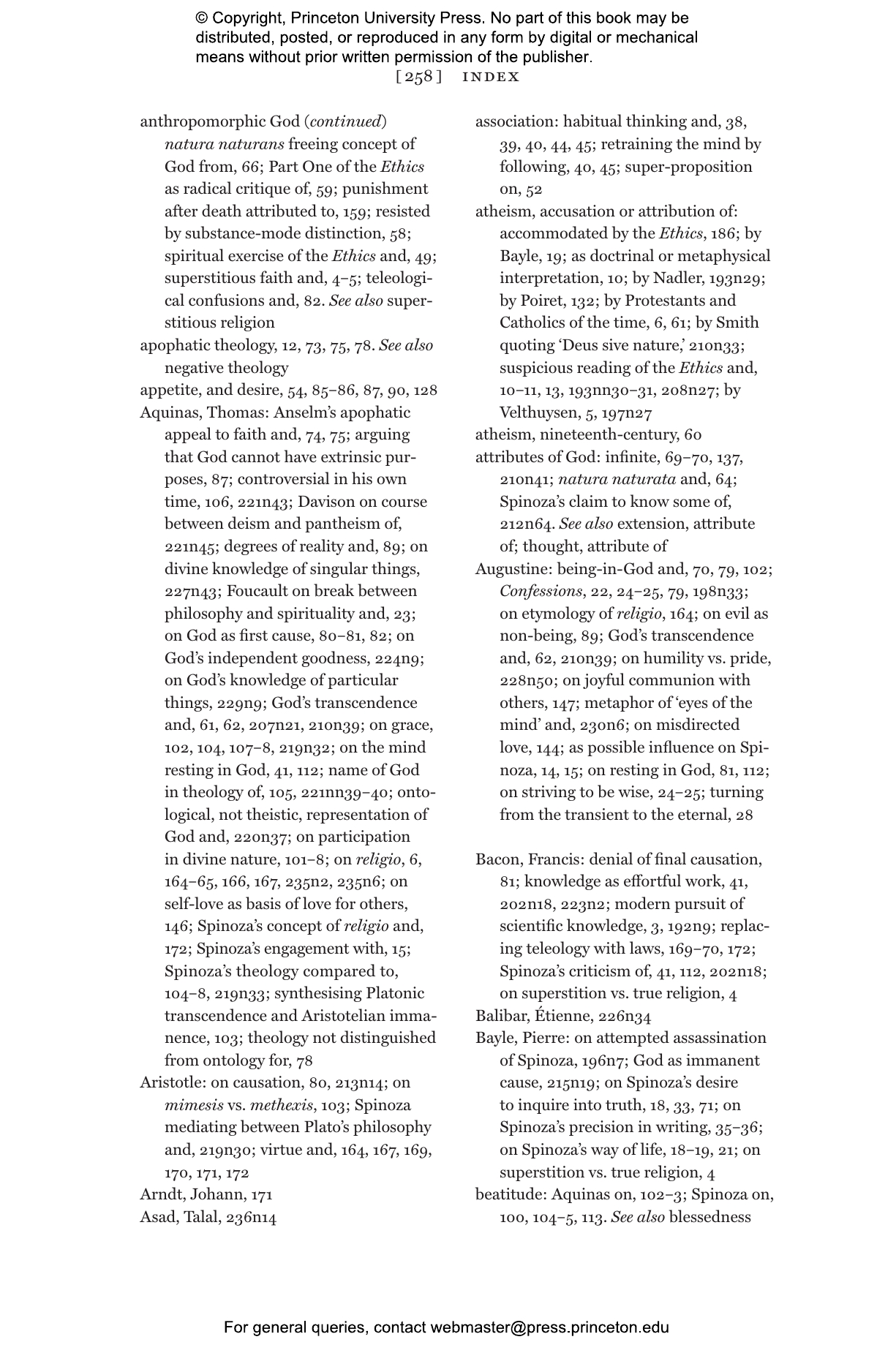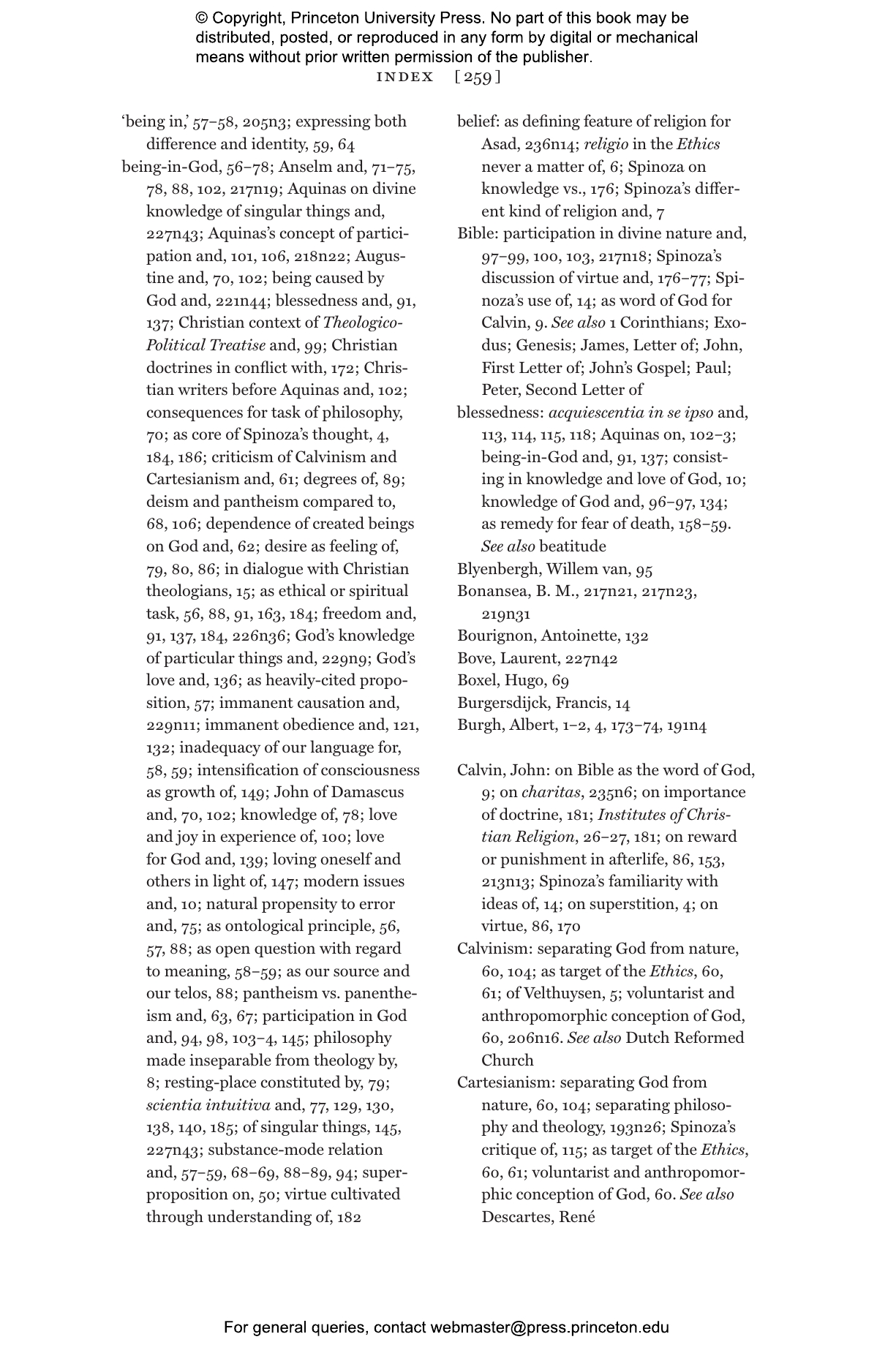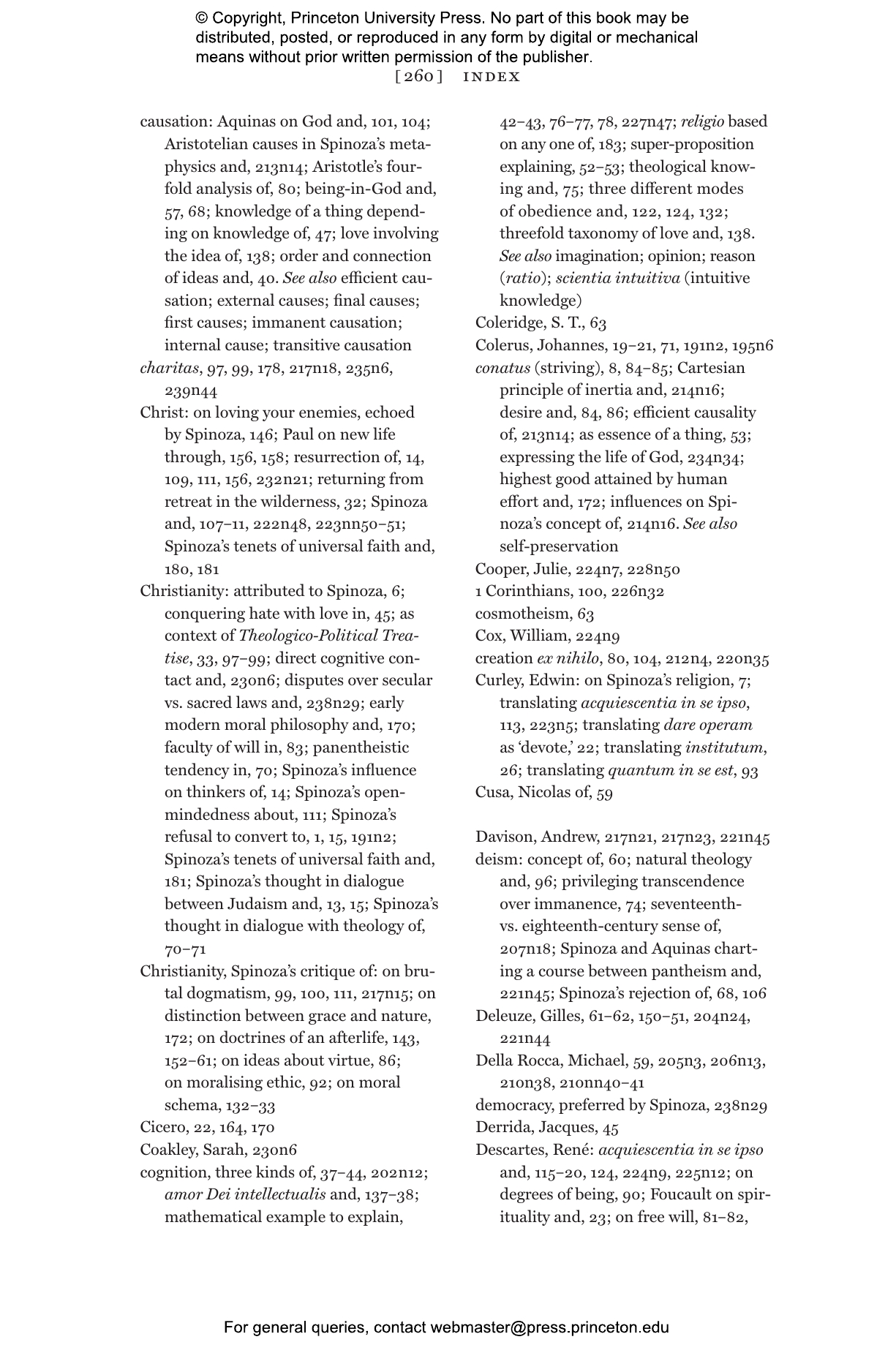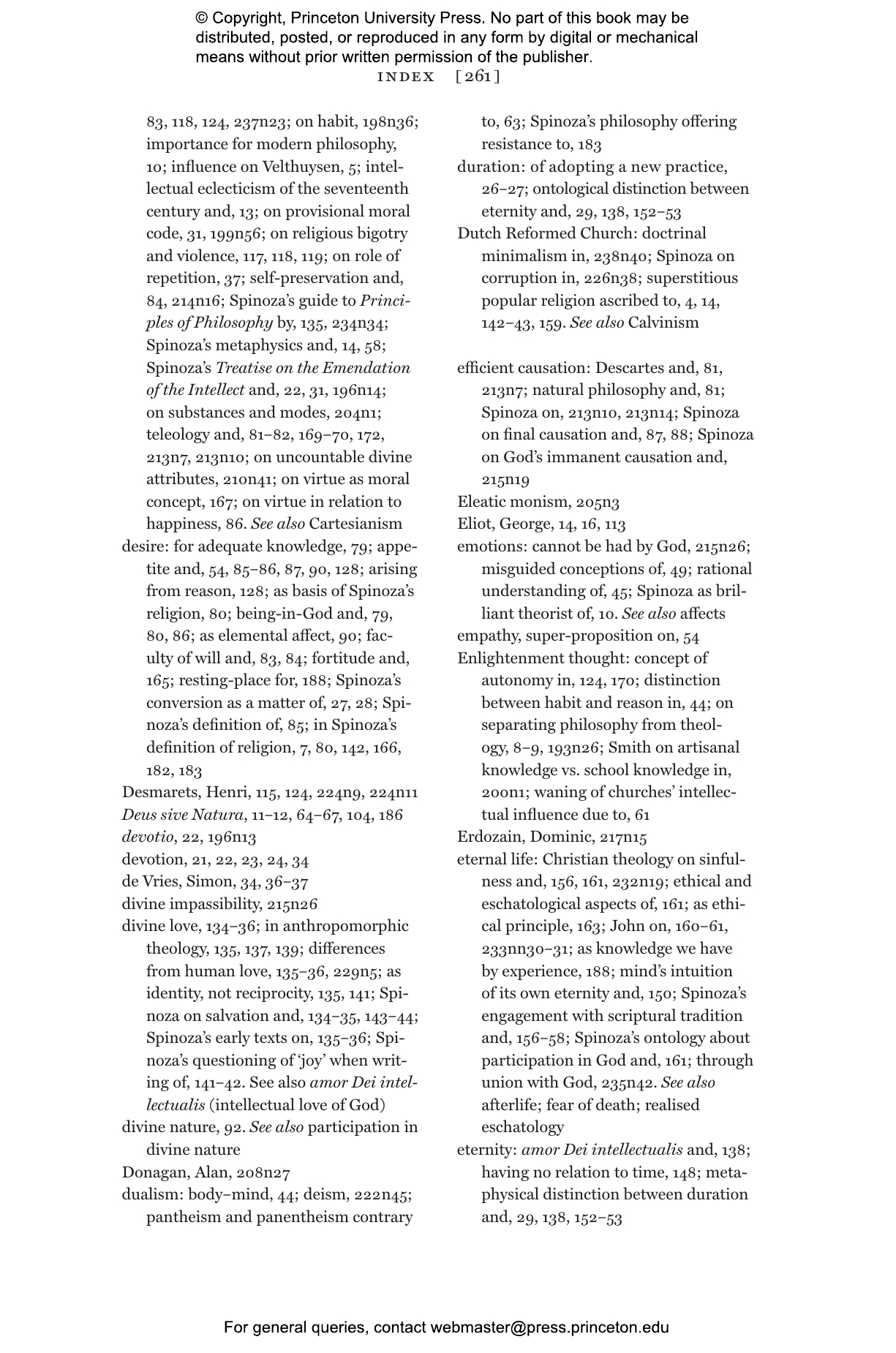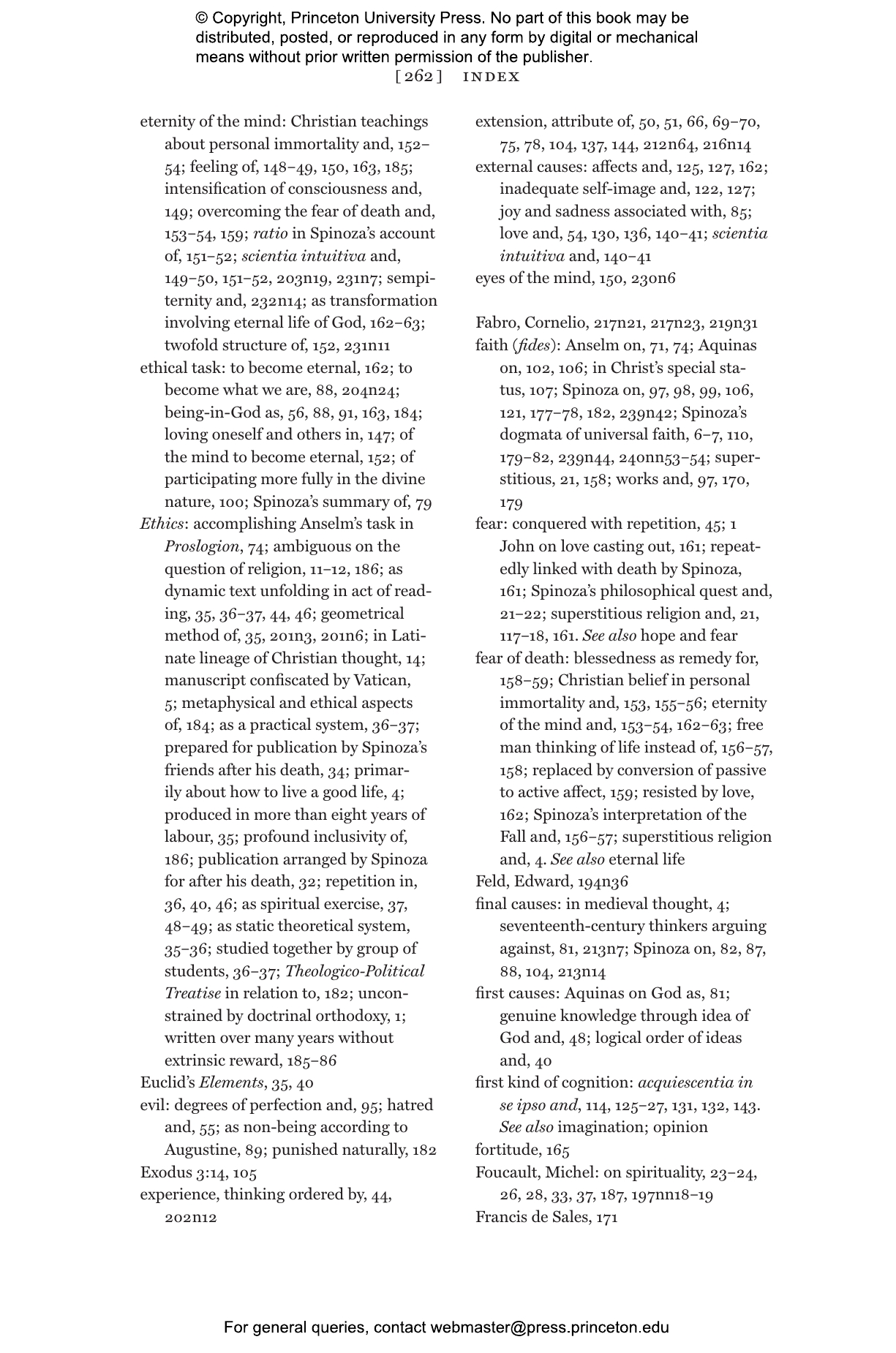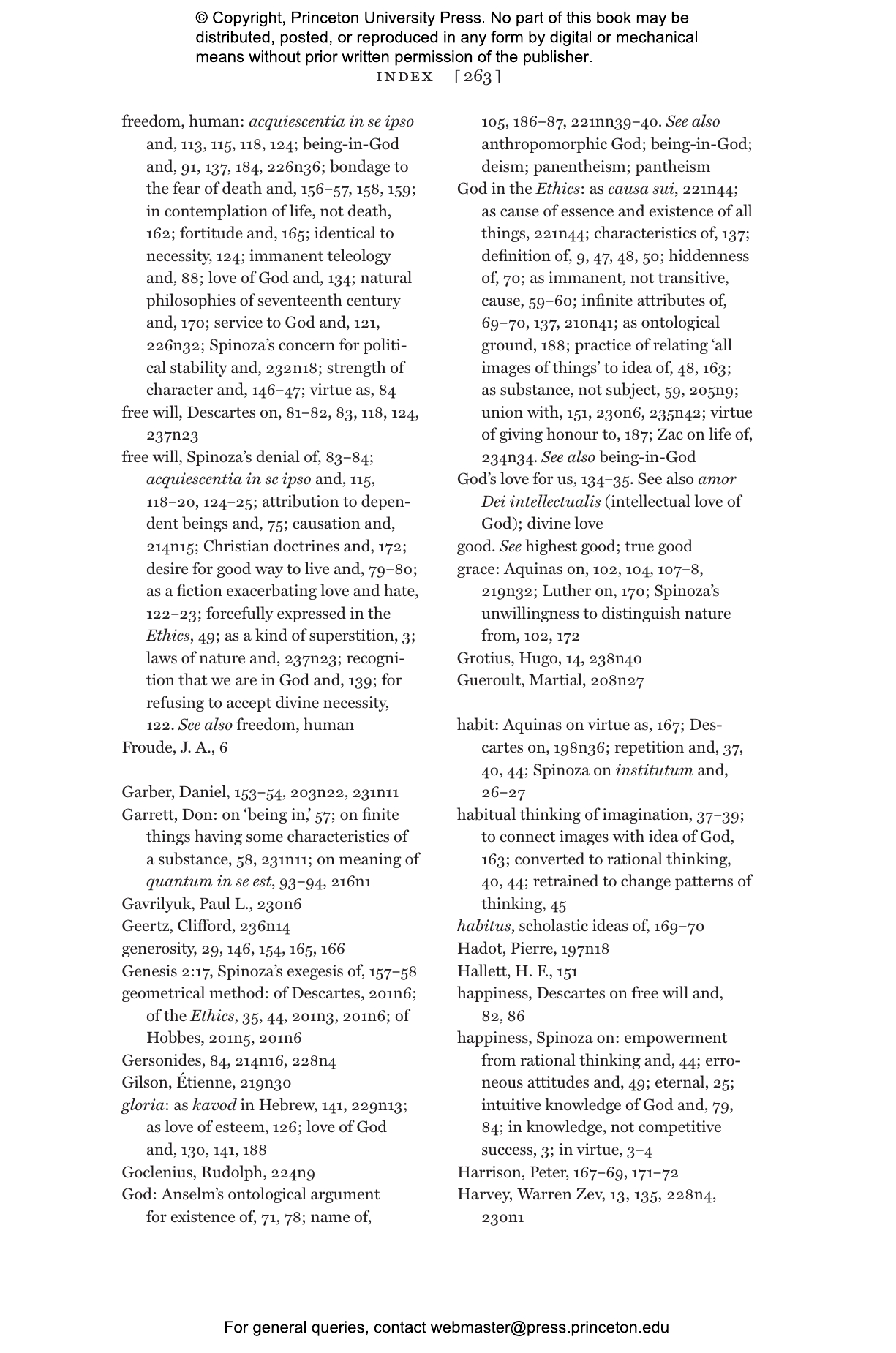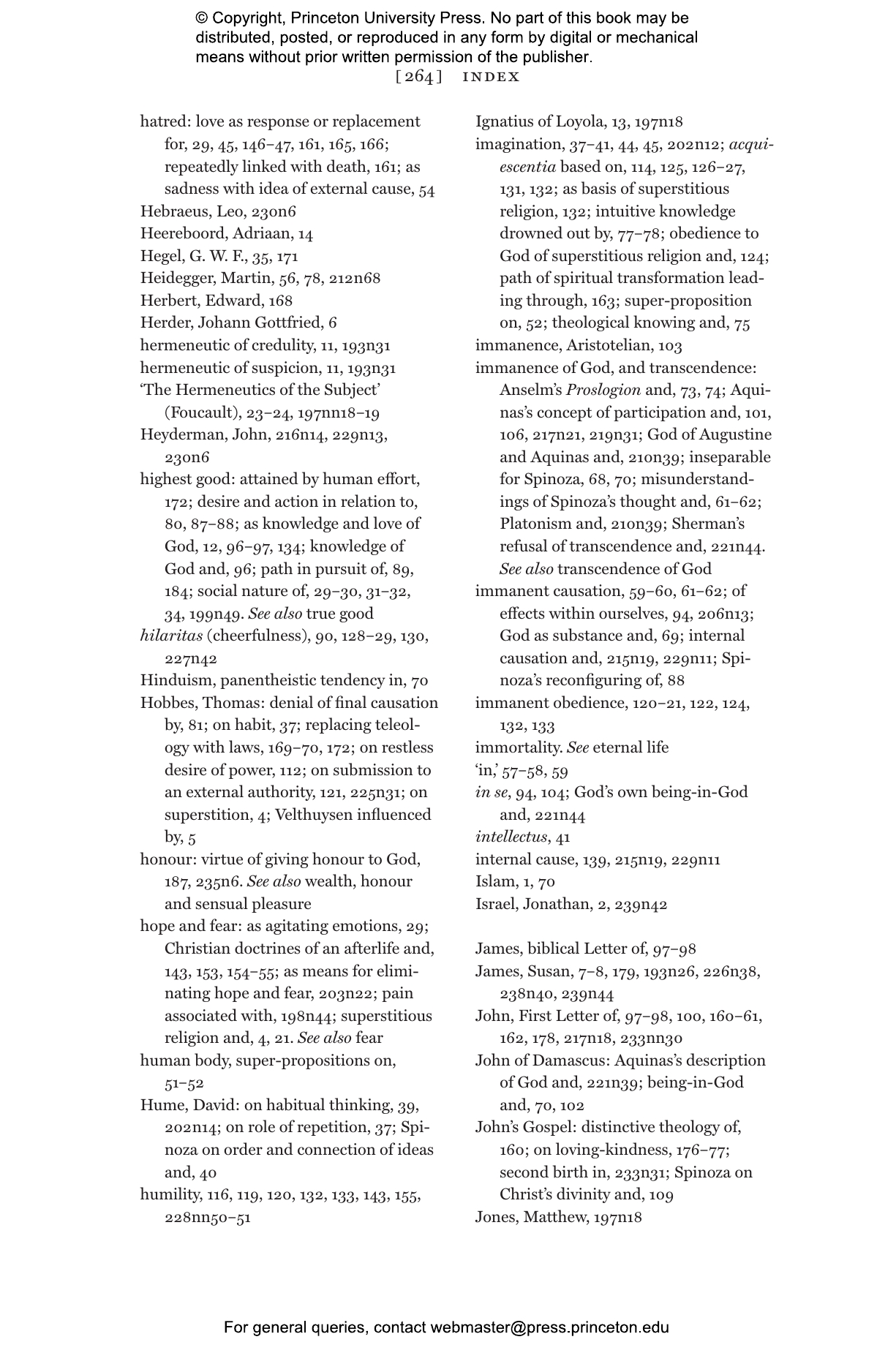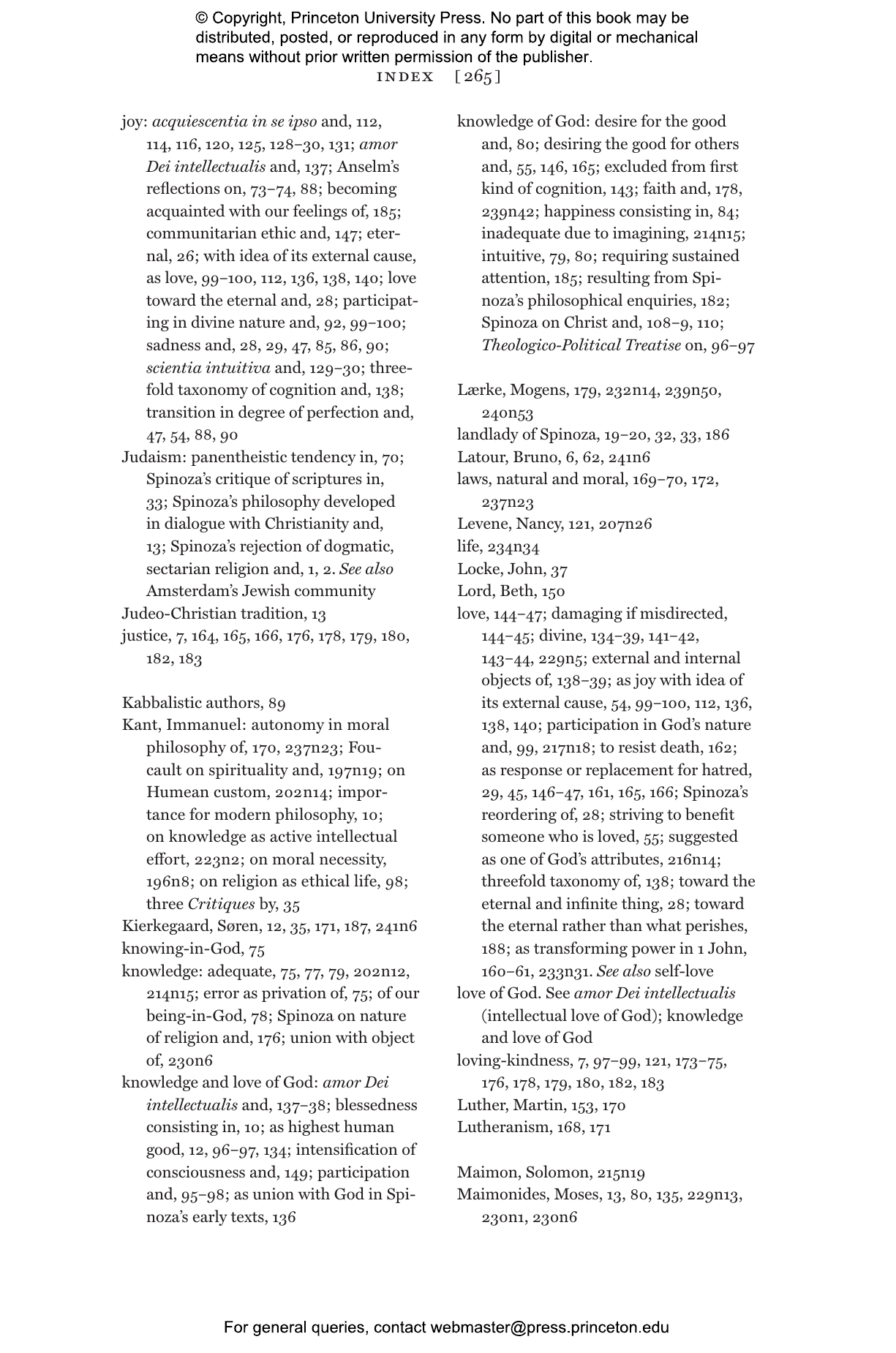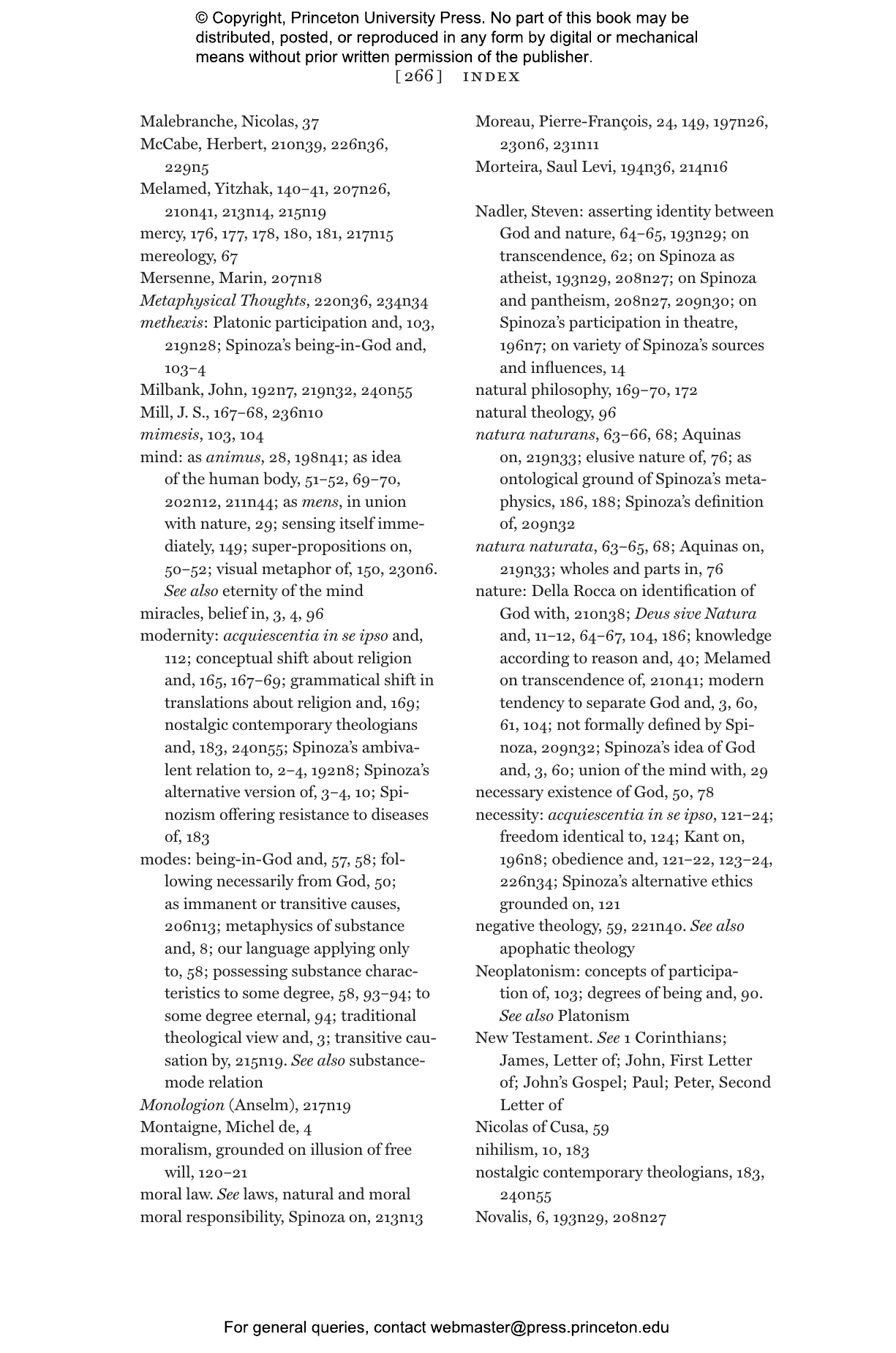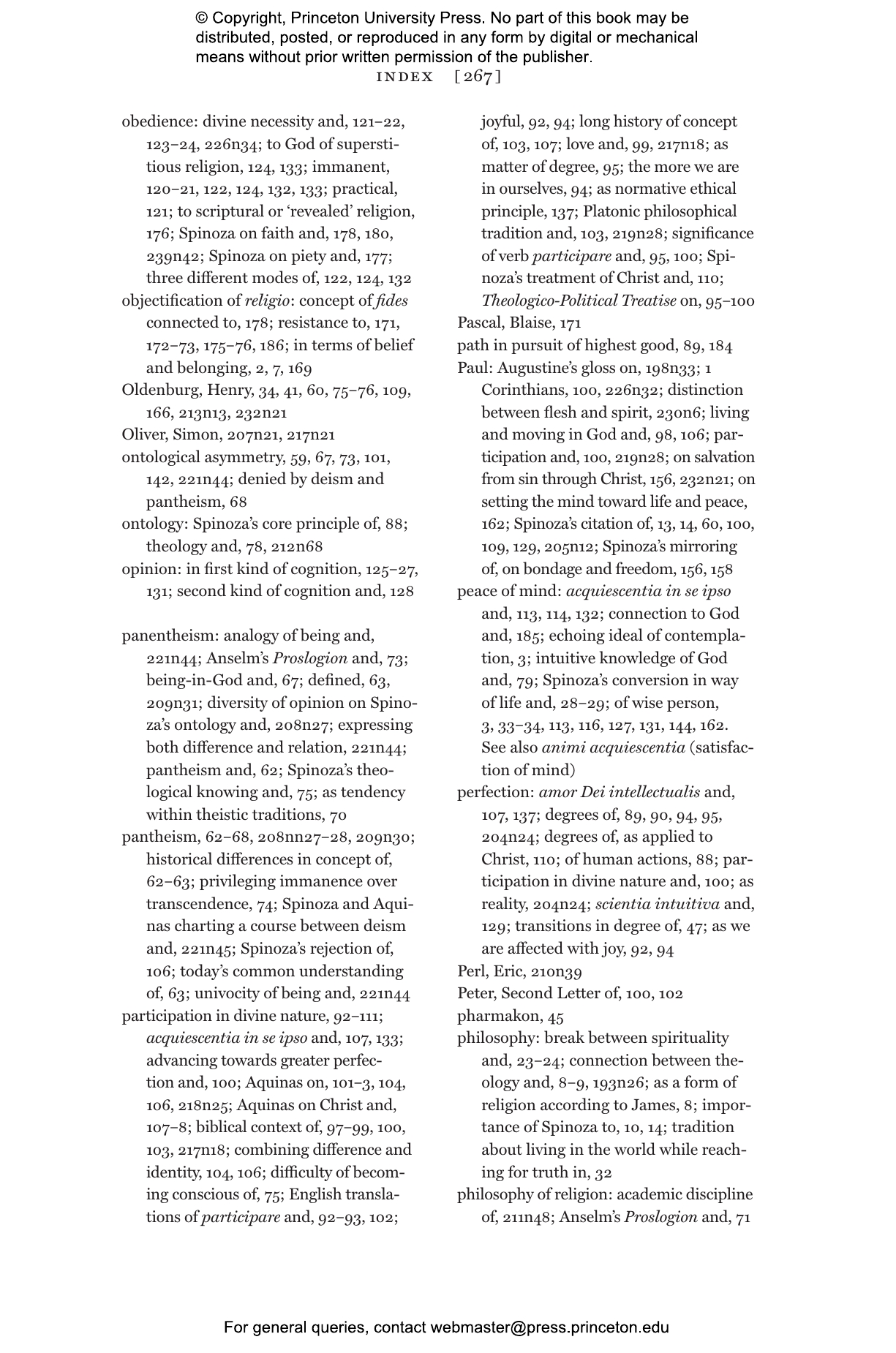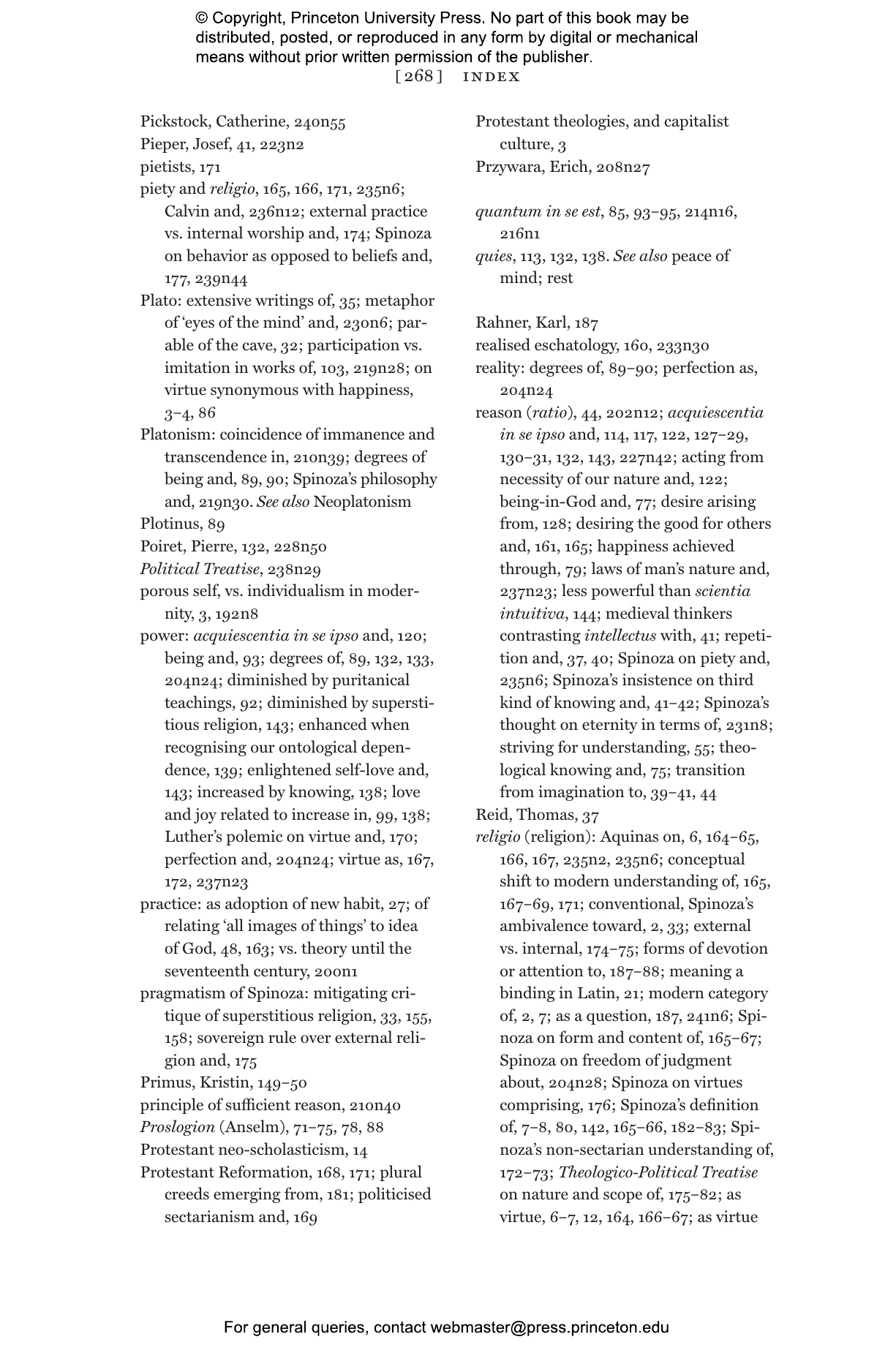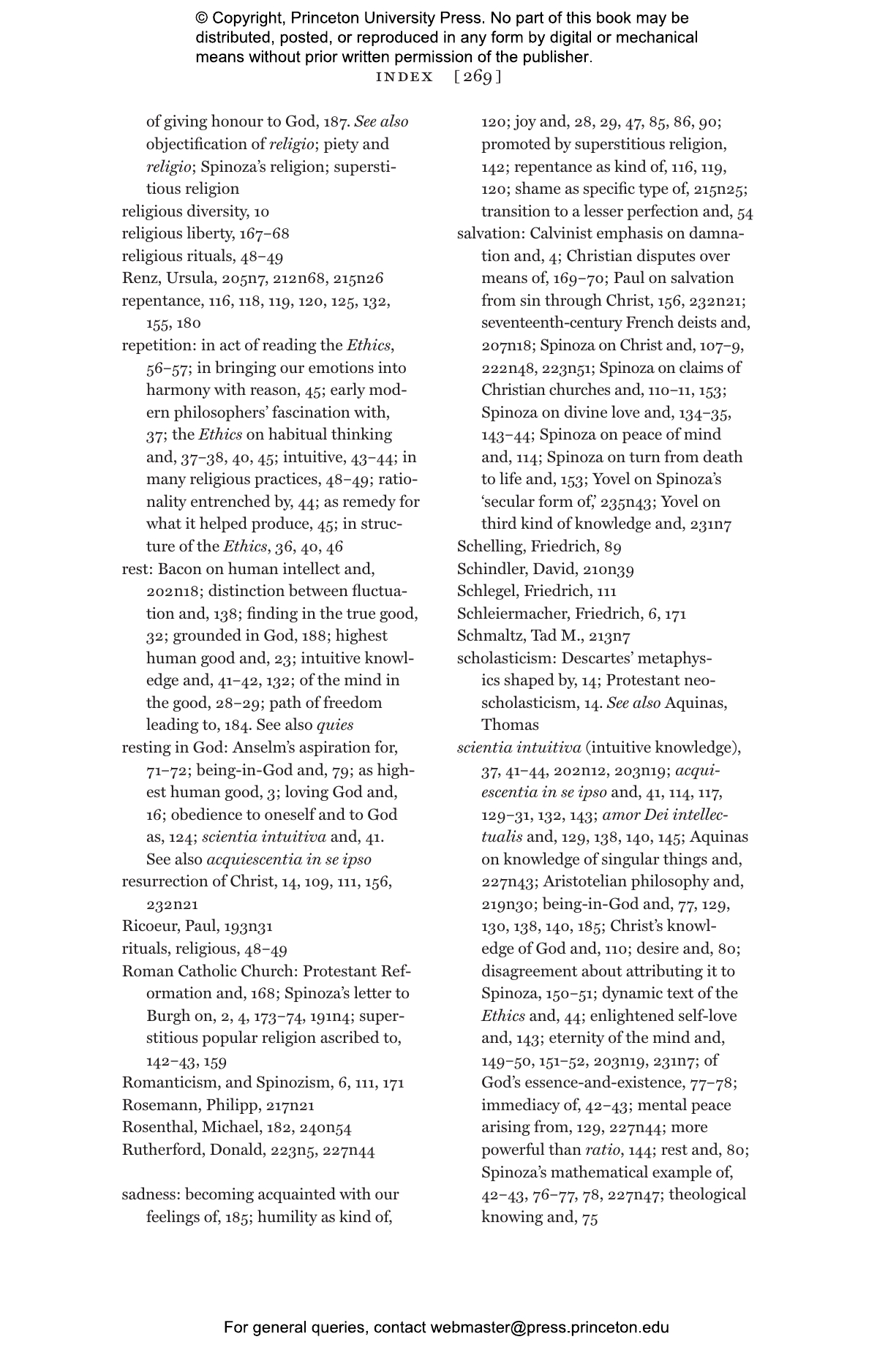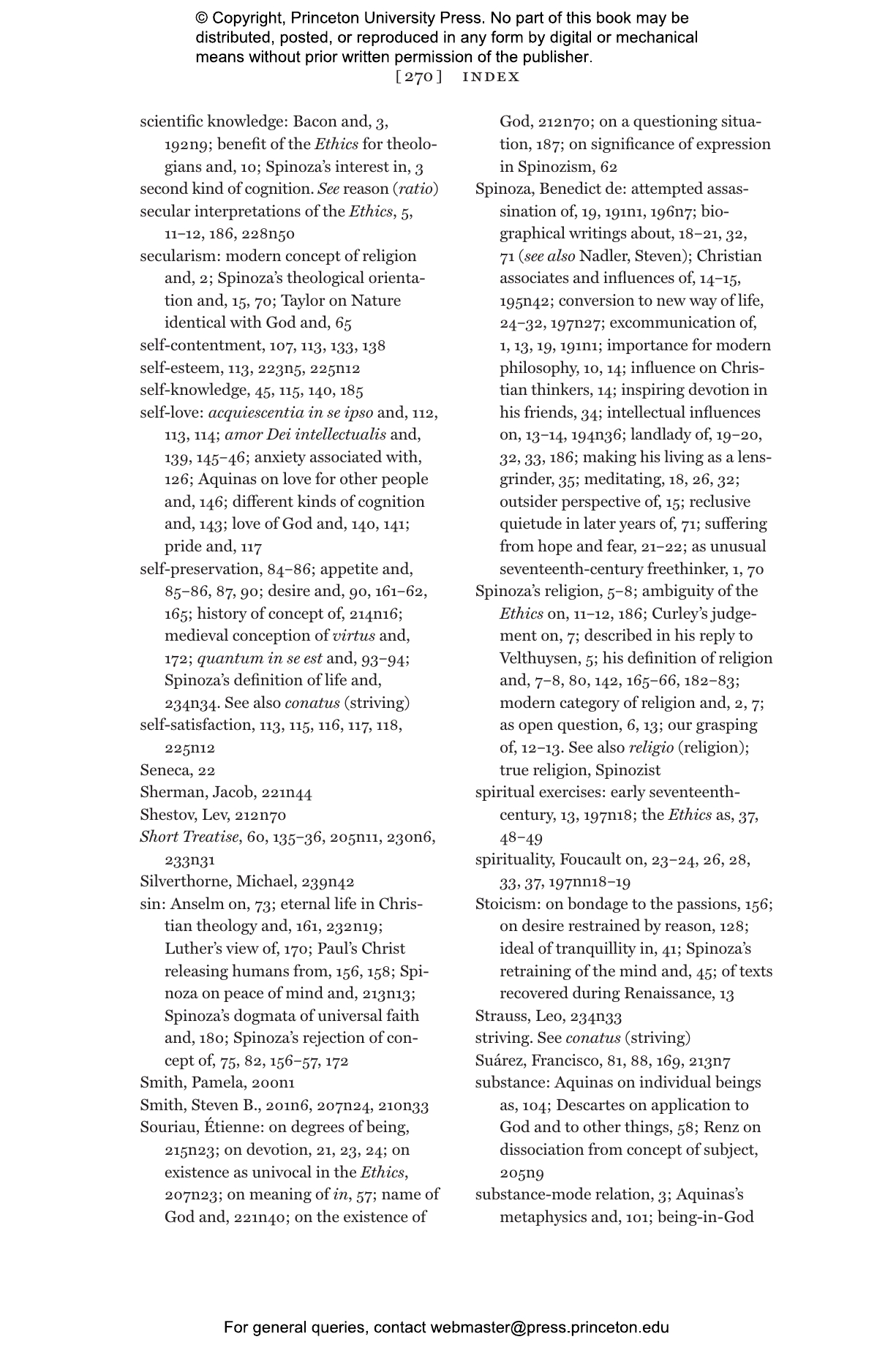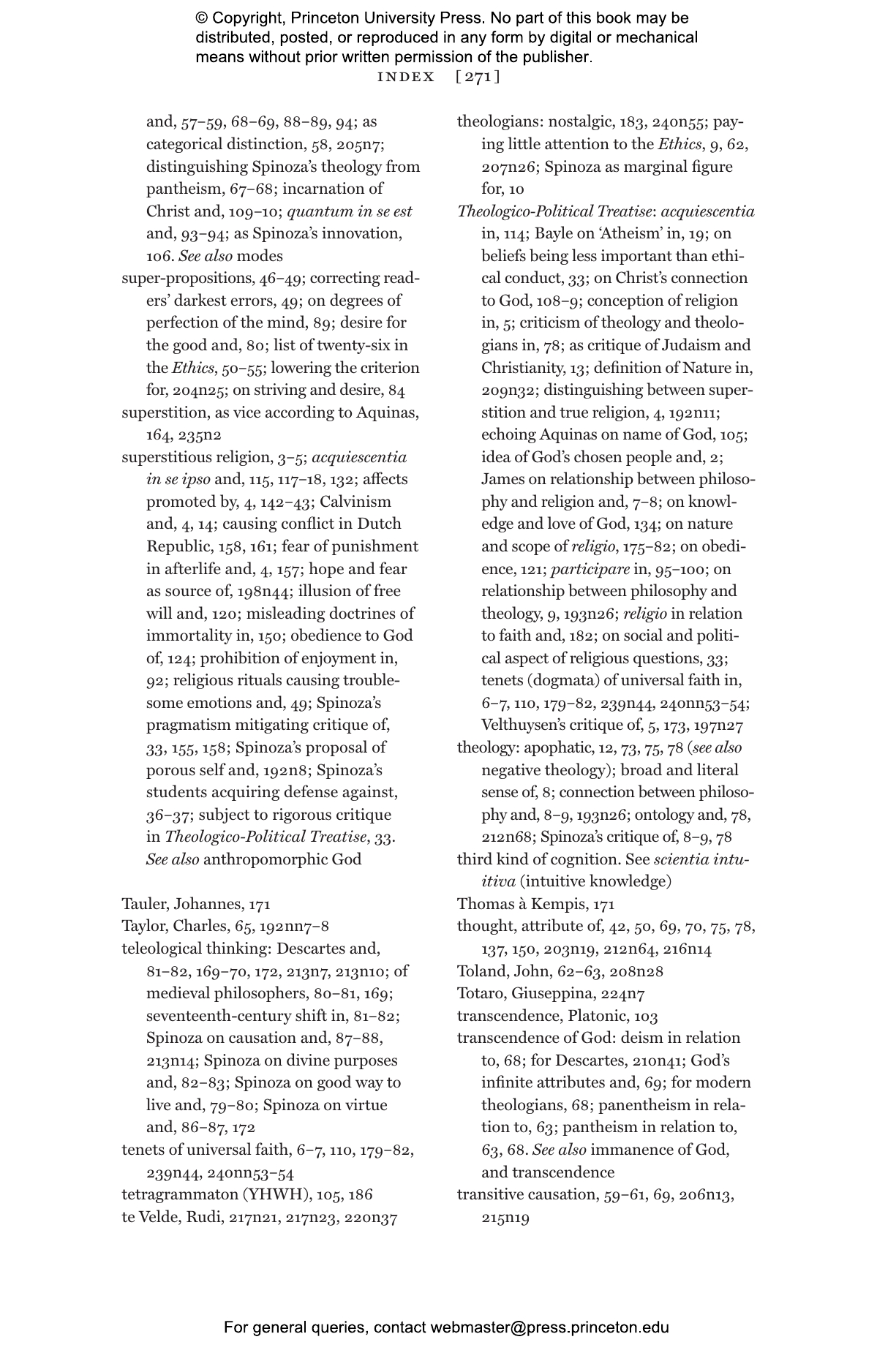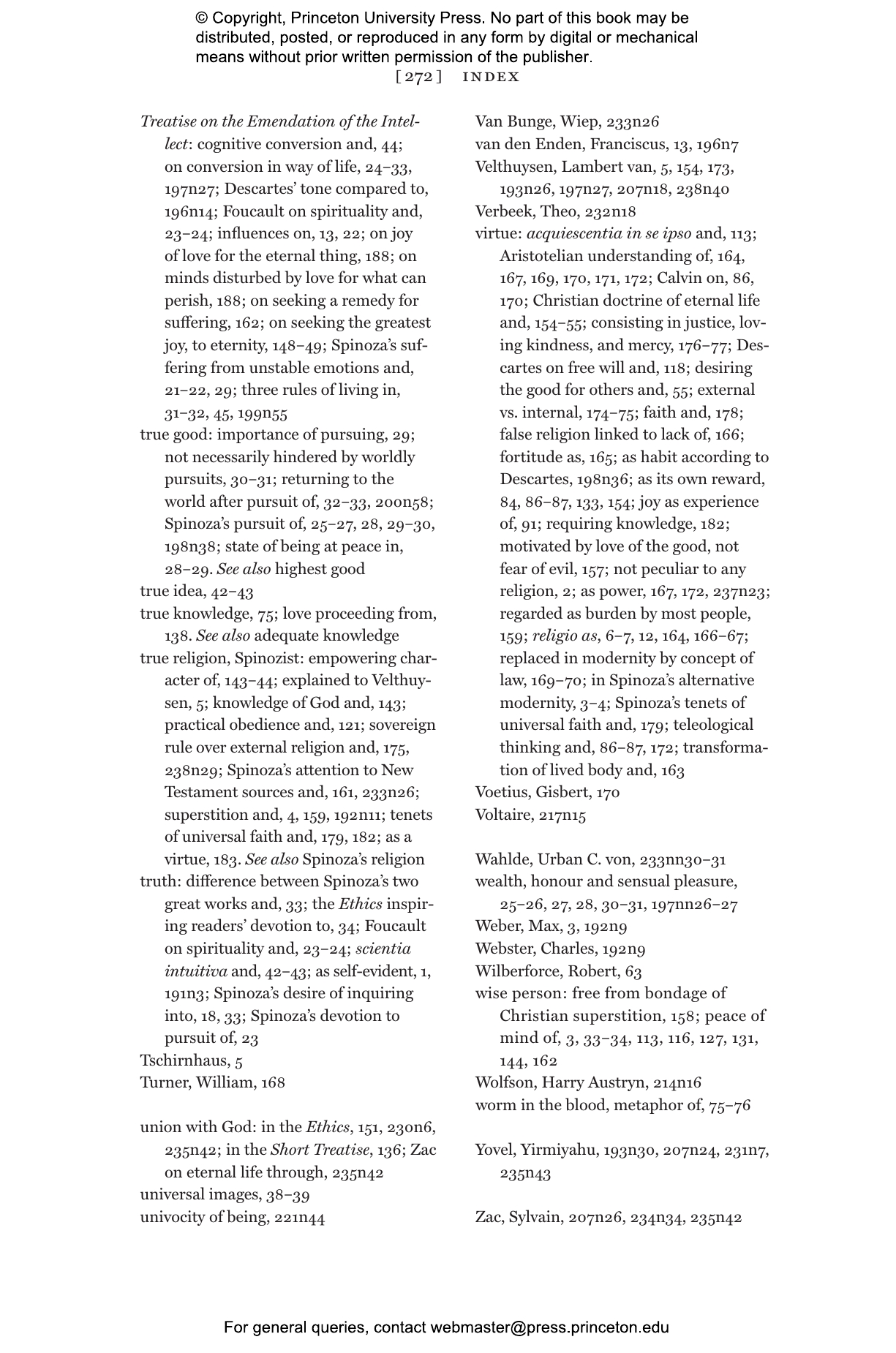Spinoza is widely regarded as either a God-forsaking atheist or a God-intoxicated pantheist, but Clare Carlisle says that he was neither. In Spinoza’s Religion, she sets out a bold interpretation of Spinoza through a lucid new reading of his masterpiece, the Ethics. Putting the question of religion centre-stage but refusing to convert Spinozism to Christianity, Carlisle reveals that “being in God” unites Spinoza’s metaphysics and ethics. Spinoza’s Religion unfolds a powerful, inclusive philosophical vision for the modern age—one that is grounded in a profound questioning of how to live a joyful, fully human life.
Like Spinoza himself, the Ethics doesn’t fit into any ready-made religious category. But Carlisle shows how it wrestles with the question of religion in strikingly original ways, responding both critically and constructively to the diverse, broadly Christian context in which Spinoza lived and worked. Philosophy itself, as Spinoza practiced it, became a spiritual endeavor that expressed his devotion to a truthful, virtuous way of life. Offering startling new insights into Spinoza’s famously enigmatic ideas about eternal life and the intellectual love of God, Carlisle uncovers a Spinozist religion that integrates self-knowledge, desire, practice, and embodied ethical life to reach toward our “highest happiness”—to rest in God.
Seen through Carlisle’s eyes, the Ethics prompts us to rethink not only Spinoza but also religion itself.
"Carlisle’s book is a finely written and thoughtful introduction to Spinoza’s philosophy for anyone who is curious as to why this thinker, dead for almost 350 years, remains vitally relevant today"—Steven Nadler, Literary Review
"[Carlisle] admirably establishes that Spinoza’s philosophy can be interpreted as a distinctive and original form of rational religion."—Carlos Fraenkel, Times Literary Supplement
"Carlisle has done us a great service by offering a convincing and newly rounded portrayal—and by reminding us that you can never exhaust the majesty of Spnoza's religious writing."—Alex Dean, Prospect
"An intimate, religious reading of Spinoza’s Ethics, which allows his peculiar religion to emerge with all its promise and paradox."—Choice Reviews
"Carlisle’s interpretation of Spinoza is consistently fresh and surprising. . . . This book steps decisively away from the modes of rational reconstruction and conceptual analysis that now dominate Spinoza scholarship in the English language, and is all the better for it. . . . An excellent book that will reward readers of Spinoza of all levels."—Beth Lord, Philosophy
"I’m sure I’m not the only person who feels excited to explore the new world of interpretation that Carlisle has opened up by taking Spinoza’s religion seriously."—Alexander Douglas, Notre Dame Philosophical Reviews
"Spinoza’s Religion is a joy to read. . . . It is a book that has the power to bring Spinoza deeper into our hearts, making his words a companion n our efforts to live with greater equanimity and delight. Spinoza's Religion also poses a compelling challenge to what we think we know about Spinoza."—Hasana Sharp, Journal of the History of Philosophy
“A wonderful contribution to the growing literature on Spinoza as a moral and religious thinker. With scholarly acumen and graceful writing, Carlisle, rightly focusing on the Ethics, asks us to rethink Spinoza’s relationship to religion and to modernity, as well as those very notions themselves.”—Steven Nadler, author of Think Least of Death: Spinoza on How to Live and How to Die
“Clare Carlisle’s outstanding Spinoza’s Religion makes a compelling case for the importance of religion for Spinoza’s vision of human self-fulfilment. Artfully written and meticulously researched, it provides a fresh perspective on a crucial aspect of Spinoza’s philosophy. This is cutting-edge scholarship that is likely to reshape the field.”—Yitzhak Y. Melamed, author of Spinoza’s Metaphysics: Substance and Thought
“Rigorous, creative, and sympathetic, this magisterial book opens up a neglected tradition and resource: a nondualistic, nondogmatic, and life-affirming spiritual philosophy. Placing Spinoza in a rich dialogue with Christian theology, Clare Carlisle shows that thinking alongside Spinoza reveals new approaches to ethics, freedom, transcendence, and participation in God. This is a landmark book that offers new vistas for philosophers and theologians and that future Spinoza scholars will need to reckon with.”—Christopher J. Insole, Durham University
